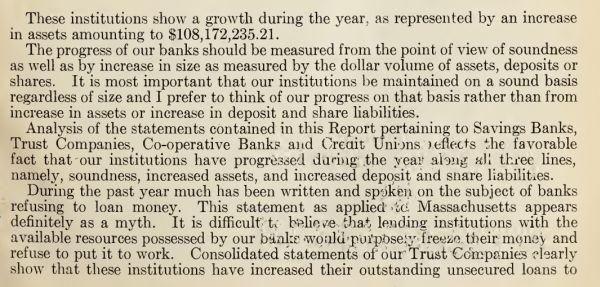Thursday, February 28, 2013
And a third mystery unraveled!
Another long-lasting question answered!
What did tornados sound like before freight trains and jet planes were invented?
The answer comes from the 1816 Encyclopedia Perthensis, under the long section on Electricity.
 Tranfcribed to make the text fearchable, and to fubftitute ftandard f's for thofe ftrange f's that feem to be f's:
Tranfcribed to make the text fearchable, and to fubftitute ftandard f's for thofe ftrange f's that feem to be f's:
 Tranfcribed to make the text fearchable, and to fubftitute ftandard f's for thofe ftrange f's that feem to be f's:
Tranfcribed to make the text fearchable, and to fubftitute ftandard f's for thofe ftrange f's that feem to be f's:
"August 2, 1763, about six in the evening, there arose at Anderlight [Anderlecht], about a league from Brussels, a conflict of several winds born upon a thick fog. This conflict lasted 4 or 5 minutes, and was attended with a frightful hissing noise, which could be compared to nothing but the yellings of an infinite number of wild beasts. The clouds then opening, discovered a kind of very bright lightning, and in an instant the roofs of one side of the houses were carried off and dispersed at a distance; above 1000 large trees were broke off, some near the ground, others near the top, some torn up by the roots; and many of the branches and tops carried to the distance of 60, 100 or 120 paces. Whole coppices were laid down, as corn is by ordinary winds; and the glass of the windows, situated near the spot, was shivered to atoms." It is not unusual for thunder-storms to produce most violent whirlwinds, such as are by some philosophers attributed to electricity; nay, even to occasion an agitation in the waters of the ocean itself; and all this too after the thunder and lightning has ceased. Of this the following instance happened at Great Malvern, October 16, 1761: "At a quarter past 4 in the afternoon, the people were surprised with a most shocking and dismal noise; 100 forges, all at work at once, could scarce equal it. Upon the side of the hill about 100 yards to the SW, there appeared a prodigious smoke, attended with the same violent noise, as if a volcano had burst out of the hill; it soon descended, and passed on within about 100 yards of the south end of the house; it seemed to rise again in the meadow just below it, and continued its progress to the east, rising in the same manner for four different times, attended with the same dismal noise as at first; the air being filled with a nauseous and sulphurous smell. It gradually decreased till it was quite extinguished in a turnip field, about a quarter of a mile below the house; the turnip leaves, with leaves of trees, dirt, sticks, &c. filled the air, and flew higher than any of the hills. The thunder ceased before this happened, and the air soon afterwards became calm and serene."The first incident could be a tornado, but seems more like a derecho or even a Chelyabinsk-size meteor. The second is unquestionably a tornado.
Another mystery cleared up!
This is a good day for explained mysteries!
Polistra has always been puzzled about the purpose of the Tesla electric car. In South Park terms, the Tesla business model appeared to be:
(1) Make a hugely expensive and completely unusable car that turns into a brick when you drive it.
(2) ???????
(3) Profit!
Now this article fills in the missing ?????? part.
Tesla CEO Elon Musk must be getting tired of fighting bad reviews of his cars. In 2011 Tesla sued the BBC’s ‘Top Gear’ over a segment where two of their roadsters allegedly broke down on the show’s test track. Musk defended his company once again this month on Bloomberg television. He claims a misleading New York Times review of the Tesla Model S cost Tesla $100 million.So, the true and complete business model is: (1) Make a hugely expensive and completely unusable car that turns into a brick when you drive it. (2) Sue everyone who figures out that the car is unusable. (3) Profit from court settlement! And as long as I'm being silly, let's repeat the Tesla Owner's Song: Oh give me a place where the wind turbines race, where the birds and the bats die and scream; where subsidies pay for my Latté Grandé, and the bursting dams kill human dreams. Home, home is my range, where the volts charge my batteries quick, I can quietly roam, thirty miles from my home, then my Tesla turns into a brick.
Finally explained!
Well, the word finally isn't accurate, except on a personal level.
I've been looking since Sept 2008 for a plausible explanation of what happened then. It was clearly a coup, and it smelled like blackmail. Our Goldman-slave government and Goldman-slave media refused to even ask the question.
Oddly enough, the answer was published in a mainstream essay in May 2009, but I didn't see it until now. Thanks to the Econned blog for pointing to it.
The explanation, along with plenty of good background info, was in The Quiet Coup by Simon Johnson, former head of IMF. His experience in dealing with third-world countries enabled him to understand this third-world country in a way that other observers couldn't or wouldn't:
In its depth and suddenness, the U.S. economic and financial crisis is shockingly reminiscent of moments we have recently seen in emerging markets (and only in emerging markets): South Korea (1997), Malaysia (1998), Russia and Argentina (time and again). In each of those cases, global investors, afraid that the country or its financial sector wouldn’t be able to pay off mountainous debt, suddenly stopped lending. And in each case, that fear became self-fulfilling, as banks that couldn’t roll over their debt did, in fact, become unable to pay. This is precisely what drove Lehman Brothers into bankruptcy on September 15, causing all sources of funding to the U.S. financial sector to dry up overnight. Just as in emerging-market crises, the weakness in the banking system has quickly rippled out into the rest of the economy, causing a severe economic contraction and hardship for millions of people.Well, that's it then. Not explicit old-fashioned blackmail as I suspected, but extortion nonetheless. The foreign lenders who had been propping up our fake "economy" saw the game starting to collapse, and began pulling out the props. Goldman dba "US Government" had to satisfy them to keep the Ponzi rolling.
Wednesday, February 27, 2013
Did money come from Betelgeuse?
This morning one of the Money Talk shows, maybe Ray Lucia, was making a point about evolution and money. It's a familiar and plausible point, rehashed often: Money came along quite late in the course of evolution, thus we aren't equipped to handle it. We constantly make big mistakes in evaluating prices and risks because money is basically beyond us.
This morning, for some reason, I applied the Grand Blueprint mindset instead of the random evolution mindset. The Grand Blueprint, gaining more support every day from new examinations of epigenetics and actual critters, holds that all the functions and purposes of plants and animals were present from the start. Each major and minor type of living creature, each phylum and species, carries a significant part of the whole blueprint, maybe even the whole thing; but the hard-wired heritable genome of each type includes only a very small subset. Putting it simply, evolution is a process of subtraction, not a process of addition.
Okay then. If all human talents and tendencies have been available since we walked upright, then these particular deficiencies in sensing risk or value are not universal. Money, with all its various virtues and sins, didn't drop in from some other planet 5000 years ago. All aspects of money were invented by humans with better talents in this area; thus all aspects are understandable by higher-ability humans. It's not a question of universal deficiency, it's just a question of different types of intelligence. Some humans understand the risks and values well enough to fool other humans. If that weren't true, money wouldn't exist at all.
Why is this important? Because the 'money came from ET' mindset makes it easier for the cheaters to get away with their games. Securitization is 'too complicated' to regulate. Mere humans can't understand it; we just have to trust Goldman to do it honestly.
Nonsense. It's all as old as humanity, and governments have been regulating commercial cheaters ever since we had governments. When securitization popped up in Swift's time, the British government wasn't afraid to punish it. When it popped up again in Coolidge's time, FDR wasn't afraid to punish it. The only reason we won't punish it now is because the thieves are fully in control of everything. That's all. It's not evolution, it's just absolute and total crime. The problem is complicity, not complexity.
Labels: Grand Blueprint
Tuesday, February 26, 2013
Good stereotypes make good neighbors
Nice straightforward article on the value of stereotypes by Ross Pomeroy. Nothing new or surprising. Most stereotypes are accurate. Forbidding all stereotypes prevents us from protecting ourselves, and prevents us from distinguishing the few inaccurate generalizations from the many true ones.
Pomeroy's discussion of bad neighborhoods led me to a new thought via circuitous paths. Spokane's leftist establishment sees most of the city as a bad neighborhood,
 which has always struck me as unjust. Look at any combox under any local news item, and you'll find scathing hatred for the 'North Side', comprising about 2/3 of the city's area and population. If you've never been here, you'd think everything north of the river was Compton. In fact the bad parts are small isolated islands, and they're mainly on the East Side, both north and south. Trouble is, 'the East Side' isn't a named stereotype in Spokane. The southern part of the East Side counts as part of the supposedly nice 'South Hill', and the northern part of the East Side counts as part of the supposedly awful 'North Side'.
Recently I decided to stop fighting the anti-NorthSide bias. If it keeps rich assholes from moving into this part of town, then it's a protective fence. Rich assholes bring dishonesty, deviance, inequality and snobbery wherever they move.
Here's the new thought: I'm a social imbecile, with zero understanding of human strategies. If I can reach this conclusion about stereotypes after 63 years of slow dull thinking, it must be trivially and instantly obvious to people who know how to manipulate power. Thus it's highly likely that many inaccurate stereotypes are maintained because they protect someone who lives inside the stereotype.
which has always struck me as unjust. Look at any combox under any local news item, and you'll find scathing hatred for the 'North Side', comprising about 2/3 of the city's area and population. If you've never been here, you'd think everything north of the river was Compton. In fact the bad parts are small isolated islands, and they're mainly on the East Side, both north and south. Trouble is, 'the East Side' isn't a named stereotype in Spokane. The southern part of the East Side counts as part of the supposedly nice 'South Hill', and the northern part of the East Side counts as part of the supposedly awful 'North Side'.
Recently I decided to stop fighting the anti-NorthSide bias. If it keeps rich assholes from moving into this part of town, then it's a protective fence. Rich assholes bring dishonesty, deviance, inequality and snobbery wherever they move.
Here's the new thought: I'm a social imbecile, with zero understanding of human strategies. If I can reach this conclusion about stereotypes after 63 years of slow dull thinking, it must be trivially and instantly obvious to people who know how to manipulate power. Thus it's highly likely that many inaccurate stereotypes are maintained because they protect someone who lives inside the stereotype.
 which has always struck me as unjust. Look at any combox under any local news item, and you'll find scathing hatred for the 'North Side', comprising about 2/3 of the city's area and population. If you've never been here, you'd think everything north of the river was Compton. In fact the bad parts are small isolated islands, and they're mainly on the East Side, both north and south. Trouble is, 'the East Side' isn't a named stereotype in Spokane. The southern part of the East Side counts as part of the supposedly nice 'South Hill', and the northern part of the East Side counts as part of the supposedly awful 'North Side'.
Recently I decided to stop fighting the anti-NorthSide bias. If it keeps rich assholes from moving into this part of town, then it's a protective fence. Rich assholes bring dishonesty, deviance, inequality and snobbery wherever they move.
Here's the new thought: I'm a social imbecile, with zero understanding of human strategies. If I can reach this conclusion about stereotypes after 63 years of slow dull thinking, it must be trivially and instantly obvious to people who know how to manipulate power. Thus it's highly likely that many inaccurate stereotypes are maintained because they protect someone who lives inside the stereotype.
which has always struck me as unjust. Look at any combox under any local news item, and you'll find scathing hatred for the 'North Side', comprising about 2/3 of the city's area and population. If you've never been here, you'd think everything north of the river was Compton. In fact the bad parts are small isolated islands, and they're mainly on the East Side, both north and south. Trouble is, 'the East Side' isn't a named stereotype in Spokane. The southern part of the East Side counts as part of the supposedly nice 'South Hill', and the northern part of the East Side counts as part of the supposedly awful 'North Side'.
Recently I decided to stop fighting the anti-NorthSide bias. If it keeps rich assholes from moving into this part of town, then it's a protective fence. Rich assholes bring dishonesty, deviance, inequality and snobbery wherever they move.
Here's the new thought: I'm a social imbecile, with zero understanding of human strategies. If I can reach this conclusion about stereotypes after 63 years of slow dull thinking, it must be trivially and instantly obvious to people who know how to manipulate power. Thus it's highly likely that many inaccurate stereotypes are maintained because they protect someone who lives inside the stereotype.
Long-nosed cricket / EDIT: I TAKE IT BACK.
 Beppe Grillo is certainly an interesting character, but I hope young Italians will treat him with caution and suspicion. He was trained in commercial economics, and his vaguely defined agenda seems awfully similar to Occupy's vaguely defined agenda or Tea Party's vaguely defined agenda.
Smells like Agent Provocateur to me. A clever and flashy distraction, a lightning rod to discharge youthful energy into a cause that will ultimately serve the Establishment. Watch out.
= = = = =
Couple days later: NO. I TAKE IT ALL BACK after reading Evans-Pritchard's analysis of the election. The net result of Grillo's voters is a victory for parties that favor pulling Italy out of the EU. That's an ABSOLUTELY GOOD THING, and it's exactly what the banksters hate most. Remains to be seen whether the banksters will allow independence. But if AEP is right, Italy will give it a good solid try. Bravo!
Beppe Grillo is certainly an interesting character, but I hope young Italians will treat him with caution and suspicion. He was trained in commercial economics, and his vaguely defined agenda seems awfully similar to Occupy's vaguely defined agenda or Tea Party's vaguely defined agenda.
Smells like Agent Provocateur to me. A clever and flashy distraction, a lightning rod to discharge youthful energy into a cause that will ultimately serve the Establishment. Watch out.
= = = = =
Couple days later: NO. I TAKE IT ALL BACK after reading Evans-Pritchard's analysis of the election. The net result of Grillo's voters is a victory for parties that favor pulling Italy out of the EU. That's an ABSOLUTELY GOOD THING, and it's exactly what the banksters hate most. Remains to be seen whether the banksters will allow independence. But if AEP is right, Italy will give it a good solid try. Bravo!
 Beppe Grillo is certainly an interesting character, but I hope young Italians will treat him with caution and suspicion. He was trained in commercial economics, and his vaguely defined agenda seems awfully similar to Occupy's vaguely defined agenda or Tea Party's vaguely defined agenda.
Smells like Agent Provocateur to me. A clever and flashy distraction, a lightning rod to discharge youthful energy into a cause that will ultimately serve the Establishment. Watch out.
= = = = =
Couple days later: NO. I TAKE IT ALL BACK after reading Evans-Pritchard's analysis of the election. The net result of Grillo's voters is a victory for parties that favor pulling Italy out of the EU. That's an ABSOLUTELY GOOD THING, and it's exactly what the banksters hate most. Remains to be seen whether the banksters will allow independence. But if AEP is right, Italy will give it a good solid try. Bravo!
Beppe Grillo is certainly an interesting character, but I hope young Italians will treat him with caution and suspicion. He was trained in commercial economics, and his vaguely defined agenda seems awfully similar to Occupy's vaguely defined agenda or Tea Party's vaguely defined agenda.
Smells like Agent Provocateur to me. A clever and flashy distraction, a lightning rod to discharge youthful energy into a cause that will ultimately serve the Establishment. Watch out.
= = = = =
Couple days later: NO. I TAKE IT ALL BACK after reading Evans-Pritchard's analysis of the election. The net result of Grillo's voters is a victory for parties that favor pulling Italy out of the EU. That's an ABSOLUTELY GOOD THING, and it's exactly what the banksters hate most. Remains to be seen whether the banksters will allow independence. But if AEP is right, Italy will give it a good solid try. Bravo!
Monday, February 25, 2013
Good day for the world
 No reason to hold this one, waiting for the usual triple pattern! This death needs to be celebrated on its own.
One of the most toxic arrogant high-fashion commiefags in all of history has finally moved to Hell. Roy Cohn, current ruler of Hell after a hostile takeover in 1986, will try to spend a few subinfinities in bed with Koop, thinking him a kindred evil spirit. Ultimately Cohn will realize that Koop is too evil for Hell, and will banish him to the newly created Koop's Super-Exclusive Inferno Health Spa, where nobody but Koop can ever be admitted.
Trouble in Hell, happiness on earth!
= = = = =
Addendum a couple weeks later: Damn. I knew Koop was evil, but I didn't even realize the full extent of his hyperultrasuperevil.
From an adulatory pile of lethal vomit in the Soviet-front """"""""Christian"""""""" Century:
No reason to hold this one, waiting for the usual triple pattern! This death needs to be celebrated on its own.
One of the most toxic arrogant high-fashion commiefags in all of history has finally moved to Hell. Roy Cohn, current ruler of Hell after a hostile takeover in 1986, will try to spend a few subinfinities in bed with Koop, thinking him a kindred evil spirit. Ultimately Cohn will realize that Koop is too evil for Hell, and will banish him to the newly created Koop's Super-Exclusive Inferno Health Spa, where nobody but Koop can ever be admitted.
Trouble in Hell, happiness on earth!
= = = = =
Addendum a couple weeks later: Damn. I knew Koop was evil, but I didn't even realize the full extent of his hyperultrasuperevil.
From an adulatory pile of lethal vomit in the Soviet-front """"""""Christian"""""""" Century:
 No reason to hold this one, waiting for the usual triple pattern! This death needs to be celebrated on its own.
One of the most toxic arrogant high-fashion commiefags in all of history has finally moved to Hell. Roy Cohn, current ruler of Hell after a hostile takeover in 1986, will try to spend a few subinfinities in bed with Koop, thinking him a kindred evil spirit. Ultimately Cohn will realize that Koop is too evil for Hell, and will banish him to the newly created Koop's Super-Exclusive Inferno Health Spa, where nobody but Koop can ever be admitted.
Trouble in Hell, happiness on earth!
= = = = =
Addendum a couple weeks later: Damn. I knew Koop was evil, but I didn't even realize the full extent of his hyperultrasuperevil.
From an adulatory pile of lethal vomit in the Soviet-front """"""""Christian"""""""" Century:
No reason to hold this one, waiting for the usual triple pattern! This death needs to be celebrated on its own.
One of the most toxic arrogant high-fashion commiefags in all of history has finally moved to Hell. Roy Cohn, current ruler of Hell after a hostile takeover in 1986, will try to spend a few subinfinities in bed with Koop, thinking him a kindred evil spirit. Ultimately Cohn will realize that Koop is too evil for Hell, and will banish him to the newly created Koop's Super-Exclusive Inferno Health Spa, where nobody but Koop can ever be admitted.
Trouble in Hell, happiness on earth!
= = = = =
Addendum a couple weeks later: Damn. I knew Koop was evil, but I didn't even realize the full extent of his hyperultrasuperevil.
From an adulatory pile of lethal vomit in the Soviet-front """"""""Christian"""""""" Century:
Koop, a distinguished pediatric surgeon, had long opposed abortion, but in 1978 he teamed up with Francis A. Schaeffer, a goateed, knicker-wearing evangelical philosopher, to produce a film series called Whatever Happened to the Human Race? Schaeffer had long excoriated what he called “secular humanism” and warned that the legalization of abortion would soon lead to infanticide and euthanasia. Koop’s sterling reputation as a physician added credibility to the argument. As the film series toured American cities in 1979, the term “secular humanism” entered the political lexicon—and Falwell, Weyrich and other leaders of the religious right harvested popular anger over abortion. They adroitly mobilized politically conservative evangelicals into a potent voting bloc in time for the 1980 election. The rest, as they say, is history. The religious right settled on Ronald Reagan as their champion and standard-bearer, despite the fact that as governor of California Reagan had signed into law the most liberal abortion bill in the nation. They supported him instead of his evangelical opponent with a longer record of opposing abortion, incumbent Jimmy Carter. The religious right’s reward was the appointment of Koop as surgeon general of the United States. But Koop proved to be his own man: He called attention to the burgeoning AIDS crisis, even though others in the Reagan administration preferred to ignore it. He advocated for sex education and the use of condoms, which pitted him against other leaders of the religious right, especially Phyllis Schlafly. He quashed a specious [sic], politically motivated [sic] report that asserted that women who had abortions suffered adverse psychological effects.For "own man" read "Soviet mole". Koop's career was remarkably parallel to Roy Cohn. Associate with pro-American politicians; lead them into unpopular positions; take power; use power to implant the Soviet ideology with maximum force. With this info, I'm more inclined to think that Ev and Roy are enjoying their eternal mutual ass-ramming sessions. No need for Roy to get rid of such a kindred superstar of sodomy and sovietism.
Tired of this stupid analogy
From Politico:
A scientist nibbled away at Sen. Rand Paul on Friday after the Kentucky Republican blasted his research on schools of fish as wasteful federal spending. “He got the funding wrong and the species wrong, and he misrepresents the work we’ve done,” Princeton science professor Iain Couzin told POLITICO. “He’s done some serious cherry-picking here. That’s one study, we’ve had a series of studies that have taken many years.” On Fox News on Thursday night, Paul said the military has spent $5.2 million studying goldfish and advocated yanking funding for such programs to cut the budget. “In the military they have $5.2 million they spent on goldfish — studying goldfish to see how democratic they were and if we could learn about democracy from goldfish,” Paul said on Fox. “I would give the president the authority to go ahead and cut all $5 million in goldfish studies.” But Couzin charged Paul “misrepresented” the research that scientists have been doing for about four years. First of all, Couzin said, they studied golden shiner fish — not goldfish. He also said the research, among other things, can help lead to advances in technology for robots that work on deep sea oil spills and radioactive leaks. He said the research has “direct applications to human security and collective control of robots.”Wrong fish? So fucking what? Jesus. Spare us. Commenters on the story pulled out the usual tired shit: You can't always predict where research will go. Fleming found penicillin by accident, Thomson's discovery of the electron seemed useless until electronics came along. I hate to defend Rand Paul, a man who was named after a Soviet agent, but he happens to be right (by accident!) on this one point, and the usual defenders of infinite research funding are wrong. = = = = = (1) Fleming and Thomson were NOT working on blue-sky speculative crap. Fleming had been successfully developing antibiotics for 10 fucking years. He had the good sense, the experience and the equipment to spot a new antibiotic when it popped up amid the work he'd already been doing for 10 fucking years. Thomson wasn't playing around with Gedankenexperiments. He coined the concept of the electron in 1899, when electric circuitry was already well developed and commercialized. Inventors and experimenters already understood the behavior of the 'electric substance' in a solid and quantitative way. Everything that happened after Thomson could have happened just as well with the existing models. The electron did not lead to electronics; electronics led to the electron. = = = = = (2) Federally-funded researchers are not allowed to have accidents. They are required to know the result before applying for the grant. Serendipity will be ruthlessly cut down by the peer reviewers. This is basically a good thing, provided that the subject is appropriate for Federal work. When an already known discovery is likely to be beneficial to THE FUCKING PEOPLE OF THIS FUCKING COUNTRY, and when commercial interests are unlikely to fund the research, then government funding to test and develop the discovery is worthwhile. Excellent example in today's news: A wheat researcher at WSU, working patiently for 10 years (Hmm, sounds familiar) and using old-fashioned breeding instead of GM methods, has developed a wheat variety that combines the best qualities of durum and red. It has the drought tolerance of durum along with the softness needed for bread. This will expand bread-quality wheat farming into areas that are too dry, or it could decrease the need for irrigation in places like SW Kansas where the Ogallala Aquifer is being overused. The main problem with most Fed research is not the lack of serendipity, it's the subject matter. We simply don't need research in collective control of robots or social "sciences" or global warming or economics or cosmology or quantum "physics". Those areas are fraudulent religions that serve no purpose but tyranny, murder and greed.
Labels: 20th century Dark Age
Sunday, February 24, 2013
Another triple play
 Polistra notes another triple-play obituary. Founders or leaders of three iconic bottle-shaped things died this week.
(1) Paul McIlhenny, the last named McIlhenny in the Tabasco clan. The company remains privately held by the family, which means it should remain successful.
(2) Wojciech Inglot, founder of Inglot Cosmetics. The company recently released an accidental success in the form of O2M nail polish. It was intended to be all greeny and Gaian, allowing the nail to breathe. Instead, it turned out to be massively popular in the stricter parts of the Muslim world. Muslim women enjoy decoration as much as any other woman, but halal law requires all parts of the body to be 'aired'. Before O2M, nail polish was an impervious varnish, thus prohibited.
(3) Ray Cusick, designer of the Daleks, EXTERMINATED at 84.
Okay, okay, mixing those three into one theme is a long stretch. Mainly I needed to pull Polistra and Happystar out of the predicament I put them in yesterday.
Polistra notes another triple-play obituary. Founders or leaders of three iconic bottle-shaped things died this week.
(1) Paul McIlhenny, the last named McIlhenny in the Tabasco clan. The company remains privately held by the family, which means it should remain successful.
(2) Wojciech Inglot, founder of Inglot Cosmetics. The company recently released an accidental success in the form of O2M nail polish. It was intended to be all greeny and Gaian, allowing the nail to breathe. Instead, it turned out to be massively popular in the stricter parts of the Muslim world. Muslim women enjoy decoration as much as any other woman, but halal law requires all parts of the body to be 'aired'. Before O2M, nail polish was an impervious varnish, thus prohibited.
(3) Ray Cusick, designer of the Daleks, EXTERMINATED at 84.
Okay, okay, mixing those three into one theme is a long stretch. Mainly I needed to pull Polistra and Happystar out of the predicament I put them in yesterday.
 Polistra notes another triple-play obituary. Founders or leaders of three iconic bottle-shaped things died this week.
(1) Paul McIlhenny, the last named McIlhenny in the Tabasco clan. The company remains privately held by the family, which means it should remain successful.
(2) Wojciech Inglot, founder of Inglot Cosmetics. The company recently released an accidental success in the form of O2M nail polish. It was intended to be all greeny and Gaian, allowing the nail to breathe. Instead, it turned out to be massively popular in the stricter parts of the Muslim world. Muslim women enjoy decoration as much as any other woman, but halal law requires all parts of the body to be 'aired'. Before O2M, nail polish was an impervious varnish, thus prohibited.
(3) Ray Cusick, designer of the Daleks, EXTERMINATED at 84.
Okay, okay, mixing those three into one theme is a long stretch. Mainly I needed to pull Polistra and Happystar out of the predicament I put them in yesterday.
Polistra notes another triple-play obituary. Founders or leaders of three iconic bottle-shaped things died this week.
(1) Paul McIlhenny, the last named McIlhenny in the Tabasco clan. The company remains privately held by the family, which means it should remain successful.
(2) Wojciech Inglot, founder of Inglot Cosmetics. The company recently released an accidental success in the form of O2M nail polish. It was intended to be all greeny and Gaian, allowing the nail to breathe. Instead, it turned out to be massively popular in the stricter parts of the Muslim world. Muslim women enjoy decoration as much as any other woman, but halal law requires all parts of the body to be 'aired'. Before O2M, nail polish was an impervious varnish, thus prohibited.
(3) Ray Cusick, designer of the Daleks, EXTERMINATED at 84.
Okay, okay, mixing those three into one theme is a long stretch. Mainly I needed to pull Polistra and Happystar out of the predicament I put them in yesterday.
Saturday, February 23, 2013
1938: Sulking banks?
Polistra, always trying to defend FDR against his modern critics AND his modern fans who misunderstand him, is suspicious of the usual explanation of the 1938 're-depression'.
The usual leftist explanation, according to Krugman: FDR was pouring borrowed "stimulus" into the economy; he stopped in '38, and the economy crashed again. We must learn from this, and we must increase our current "stimulus" to a level sufficient to "prime the pump". This crucially necessary level of borrowing is somewhere between Infinity and (Infinity * Infinity).
First of all, the analogy fails entirely. FDR's "stimulus" was fairly small by modern standards and NONE of it went to banks. FDR had started his first term by closing bad banks, not propping them up; and he gradually added more regulation and enforcement against banks and speculators. The harshest regulations came into force in 1936.
Unlike Krugman/Bush/Obama's giant "stimulus" to the Wall Street Mafia, FDR's small "stimulus" went into building infrastructure, largely through WPA and CCC; and into supports for farm prices.
Second, leaving the idiot analogy aside: If slowed "stimulus" was the problem in 1938, we should see poor people and farmers most strongly affected by 1938, because they lost some of their "stimulus".
I'm familiar with automotive history, and this is where my suspicion started. In the auto industry, 1938 doesn't fit the 'poor hardest hit' template. The worst loss was in the middle range, not the bottom. Chevy's 1938 year was down 42% from '37; Caddy's 1938 was down 35%; but Pontiac was down 60%. Other middle makes like Hudson and Nash were dramatically down.
What was happening on the farm? A couple snippets from the nice little USDA 'Farm Outlook' booklet in 1939:
 Nothing special happening directly to farmers, but more indications that major industries were the focus of the problem.
Let's look at some manufacturing sectors, taken from this Census bureau document.
Three industries that fired lots of workers in 1938: [Larger picture here.]
Nothing special happening directly to farmers, but more indications that major industries were the focus of the problem.
Let's look at some manufacturing sectors, taken from this Census bureau document.
Three industries that fired lots of workers in 1938: [Larger picture here.]
 Three industries that weren't affected by 1938: [Larger picture here.]
Three industries that weren't affected by 1938: [Larger picture here.]
 See it? The industries that were hurt most were related to autos, or fairly expensive stuff. Clothing and shoes were NOT bothered by 1938.
Poor people kept buying shoes and clothes, but middle and upper-class people slowed down their buying of cars and other expensive items.
Typically you need a LOAN to buy a car, and you don't need a loan to buy shoes. (Though you may be running a tab at the clothing store.)
Well, let's pursue that line of thinking .... and it didn't take long to find a hint. Though internal bank documents from 1938 are probably not available online, here's the first page of a 1939 Mass Bank Commission report:
See it? The industries that were hurt most were related to autos, or fairly expensive stuff. Clothing and shoes were NOT bothered by 1938.
Poor people kept buying shoes and clothes, but middle and upper-class people slowed down their buying of cars and other expensive items.
Typically you need a LOAN to buy a car, and you don't need a loan to buy shoes. (Though you may be running a tab at the clothing store.)
Well, let's pursue that line of thinking .... and it didn't take long to find a hint. Though internal bank documents from 1938 are probably not available online, here's the first page of a 1939 Mass Bank Commission report:
 Bringing the text out of the image: "During the past year much has been written and spoken on the subject of banks refusing to loan money. This statement as applied to Mass appears definitely as a myth."
There's the smoke. Bankers were pissed at strict regulations, and decided to take revenge.
Bringing the text out of the image: "During the past year much has been written and spoken on the subject of banks refusing to loan money. This statement as applied to Mass appears definitely as a myth."
There's the smoke. Bankers were pissed at strict regulations, and decided to take revenge.
 But where's the fire? Haven't found it yet, though the SEC's enforcement of PUHCA may have been the match. Decided to post this as an open question for now, in case someone who has better access to documents happens to read it and pursue the point.
But where's the fire? Haven't found it yet, though the SEC's enforcement of PUHCA may have been the match. Decided to post this as an open question for now, in case someone who has better access to documents happens to read it and pursue the point.
 Nothing special happening directly to farmers, but more indications that major industries were the focus of the problem.
Let's look at some manufacturing sectors, taken from this Census bureau document.
Three industries that fired lots of workers in 1938: [Larger picture here.]
Nothing special happening directly to farmers, but more indications that major industries were the focus of the problem.
Let's look at some manufacturing sectors, taken from this Census bureau document.
Three industries that fired lots of workers in 1938: [Larger picture here.]
 Three industries that weren't affected by 1938: [Larger picture here.]
Three industries that weren't affected by 1938: [Larger picture here.]
 See it? The industries that were hurt most were related to autos, or fairly expensive stuff. Clothing and shoes were NOT bothered by 1938.
Poor people kept buying shoes and clothes, but middle and upper-class people slowed down their buying of cars and other expensive items.
Typically you need a LOAN to buy a car, and you don't need a loan to buy shoes. (Though you may be running a tab at the clothing store.)
Well, let's pursue that line of thinking .... and it didn't take long to find a hint. Though internal bank documents from 1938 are probably not available online, here's the first page of a 1939 Mass Bank Commission report:
See it? The industries that were hurt most were related to autos, or fairly expensive stuff. Clothing and shoes were NOT bothered by 1938.
Poor people kept buying shoes and clothes, but middle and upper-class people slowed down their buying of cars and other expensive items.
Typically you need a LOAN to buy a car, and you don't need a loan to buy shoes. (Though you may be running a tab at the clothing store.)
Well, let's pursue that line of thinking .... and it didn't take long to find a hint. Though internal bank documents from 1938 are probably not available online, here's the first page of a 1939 Mass Bank Commission report:
 Bringing the text out of the image: "During the past year much has been written and spoken on the subject of banks refusing to loan money. This statement as applied to Mass appears definitely as a myth."
There's the smoke. Bankers were pissed at strict regulations, and decided to take revenge.
Bringing the text out of the image: "During the past year much has been written and spoken on the subject of banks refusing to loan money. This statement as applied to Mass appears definitely as a myth."
There's the smoke. Bankers were pissed at strict regulations, and decided to take revenge.
 But where's the fire? Haven't found it yet, though the SEC's enforcement of PUHCA may have been the match. Decided to post this as an open question for now, in case someone who has better access to documents happens to read it and pursue the point.
But where's the fire? Haven't found it yet, though the SEC's enforcement of PUHCA may have been the match. Decided to post this as an open question for now, in case someone who has better access to documents happens to read it and pursue the point.
Friday, February 22, 2013
Shepardson again
This morning's science news about bees and ions adds another piece to the old Shepardson puzzle. Polistra has been following an old idea, written up by George Shepardson in 1901, that (some) plants live more by trading electrons than by absorbing sunlight.
Today's item indicates that (some) plants use negative charge intentionally to attract bees. When a flower is ready for bee service, the plant charges it negatively. Bees, who are always charged positively from the friction of flapping around in the air, sense the negative field and head for it. The contact of bee to flower discharges both sides, so the bee can tell which flowers are used up.
 Shepardson's special theme was that pointy things act as centers for charge transfer. Pine needles have very little sunlight-absorbing area and excellent charge-absorbing qualities, so it's reasonable to assume that their main function is to gather electrons, not to gather sunlight. Similarly, bumblebees are hairy so they can sense the static signals from flowers.
= = = = =
Ancient sidenote, from 1816 'Encyclopedia Perthensis'.
Shepardson's special theme was that pointy things act as centers for charge transfer. Pine needles have very little sunlight-absorbing area and excellent charge-absorbing qualities, so it's reasonable to assume that their main function is to gather electrons, not to gather sunlight. Similarly, bumblebees are hairy so they can sense the static signals from flowers.
= = = = =
Ancient sidenote, from 1816 'Encyclopedia Perthensis'.

 Shepardson's special theme was that pointy things act as centers for charge transfer. Pine needles have very little sunlight-absorbing area and excellent charge-absorbing qualities, so it's reasonable to assume that their main function is to gather electrons, not to gather sunlight. Similarly, bumblebees are hairy so they can sense the static signals from flowers.
= = = = =
Ancient sidenote, from 1816 'Encyclopedia Perthensis'.
Shepardson's special theme was that pointy things act as centers for charge transfer. Pine needles have very little sunlight-absorbing area and excellent charge-absorbing qualities, so it's reasonable to assume that their main function is to gather electrons, not to gather sunlight. Similarly, bumblebees are hairy so they can sense the static signals from flowers.
= = = = =
Ancient sidenote, from 1816 'Encyclopedia Perthensis'.

Labels: 20th century Dark Age, bee, Grand Blueprint
Thursday, February 21, 2013
Why is that surprising?
Somewhat interesting science item.
The complexity [of speech] comes from the fact that spoken words require the coordinated efforts of numerous "articulators" in the vocal tract -- the lips, tongue, jaw and larynx -- but scientists have not understood how the movements of these distinct articulators are precisely coordinated in the brain. To understand how speech articulation works, Chang and his colleagues recorded electrical activity directly from the brains of three people undergoing brain surgery at UCSF, and used this information to determine the spatial organization of the "speech sensorimotor cortex," which controls the lips, tongue, jaw, larynx as a person speaks. This gave them a map of which parts of the brain control which parts of the vocal tract. They then applied a sophisticated new method called "state-space" analysis to observe the complex spatial and temporal patterns of neural activity in the speech sensorimotor cortex that play out as someone speaks. This revealed a surprising sophistication in how the brain's speech sensorimotor cortex works. They found that this cortical area has a hierarchical and cyclical structure that exerts a split-second, symphony-like control over the tongue, jaw, larynx and lips.Okay, so getting a real-time map of what happens in the sensori-motor area is an advance in scanning. But really: why are you surprised at the sophistication? It's been known for 200 years that speech is a monstrously complex process involving split-second coordination of a dozen major sections of the body and a hundred different muscles. So the control center, wherever it might be, has to provide split-second coordination of a monstrously complex process. Considering the brain's even more amazing ability to rewire itself on the fly, I doubt that these particular mappings are permanent or general.
A prayer, repeated again
Today's stock news is encouraging, but nowhere near enough. Apparently the Federal Counterfeit Bank has vaguely indicated that its Mafia-Feeding Mechanism may drop from (infinity*infinity) to merely (infinity) at some unstated future time which may even be within the lifetime of our great-great-great-great-great-great-grandchildren. This was enough to throw the Jew Mafia into a frenzy.
Time to repeat the prayer for complete reform:
= = = = =
Polistra and Happystar are saying a prayer in the form of a cheer. Since nobody in the Gaian Occupation Government understands the truth, maybe Allah will have mercy on this unfortunate land and force the truth to be visible in the only way that the idiots will understand.
It would have to be Allah, since his economic system is exactly the right medicine for our terminal illness.
Closed caption for cartoon-impaired:
Gimme a Z! Z!
Gimme a E! E!
Gimme a R! R!
Gimme a O! O!
Whatsat spell? Zero!
Where do we wannit? DOW!
When do we wannit? NOW!
= = = = =
And why is this necessary? Another repeat:
For the last 5 years we've been operating in strict defiance of the oldest law of economics, pretending that we can hold the price of borrowing at zero (for the Correct People only!) without creating problems. Real economists have known since 300 AD that price control always creates shortages, hoarding and black markets. And predictably, we have shortages, hoarding and black markets in capital. These bad things bring great profit to a few evil people, and those evil people pay all the 'economists' to be goddamn liars. If interest rates can rise to meet genuine risk, the whole banking system will return to a true free-market setup. When governments realize they have to pay actual interest on their bonds, they will be much slower to borrow. (I suppose Capo Bugsy Bernanke will invent some new criminal trick to get around it, but China's own economy is slowing down now, so China can't be the ultimate sugar daddy from now on.)
Same with stock prices. This is a longer-lasting problem, running back to 1980 or so. Companies that use profit as their pivot point are motivated to satisfy their customers and their employees. Companies that use share price as their goal don't care about quality of product or service; share price can be manipulated easily by insider tricks (acquisitions, buying back own stock) without any actual product or service at all.
Clearly the 2008 crash wasn't enough. Suckers are still going into the market, giving the evil players lots of material to play with. A great big resounding crash will drive the suckers out once and for all, and the share-dependent companies and traders will be unable to function. Only 'privately held' companies that operate without trading will survive. Profit will dominate again.
LOW INTEREST AND HIGH STOCKS ARE THE PROBLEM.
HIGH INTEREST AND LOW STOCKS ARE THE SOLUTION.
= = = = =
Polistra and Happystar are saying a prayer in the form of a cheer. Since nobody in the Gaian Occupation Government understands the truth, maybe Allah will have mercy on this unfortunate land and force the truth to be visible in the only way that the idiots will understand.
It would have to be Allah, since his economic system is exactly the right medicine for our terminal illness.
Closed caption for cartoon-impaired:
Gimme a Z! Z!
Gimme a E! E!
Gimme a R! R!
Gimme a O! O!
Whatsat spell? Zero!
Where do we wannit? DOW!
When do we wannit? NOW!
= = = = =
And why is this necessary? Another repeat:
For the last 5 years we've been operating in strict defiance of the oldest law of economics, pretending that we can hold the price of borrowing at zero (for the Correct People only!) without creating problems. Real economists have known since 300 AD that price control always creates shortages, hoarding and black markets. And predictably, we have shortages, hoarding and black markets in capital. These bad things bring great profit to a few evil people, and those evil people pay all the 'economists' to be goddamn liars. If interest rates can rise to meet genuine risk, the whole banking system will return to a true free-market setup. When governments realize they have to pay actual interest on their bonds, they will be much slower to borrow. (I suppose Capo Bugsy Bernanke will invent some new criminal trick to get around it, but China's own economy is slowing down now, so China can't be the ultimate sugar daddy from now on.)
Same with stock prices. This is a longer-lasting problem, running back to 1980 or so. Companies that use profit as their pivot point are motivated to satisfy their customers and their employees. Companies that use share price as their goal don't care about quality of product or service; share price can be manipulated easily by insider tricks (acquisitions, buying back own stock) without any actual product or service at all.
Clearly the 2008 crash wasn't enough. Suckers are still going into the market, giving the evil players lots of material to play with. A great big resounding crash will drive the suckers out once and for all, and the share-dependent companies and traders will be unable to function. Only 'privately held' companies that operate without trading will survive. Profit will dominate again.
LOW INTEREST AND HIGH STOCKS ARE THE PROBLEM.
HIGH INTEREST AND LOW STOCKS ARE THE SOLUTION.
Wednesday, February 20, 2013
Dogs and automobiles.
Why do dogs love vehicles? There aren't any vehicles in nature. Insects ride everything (sometimes in multiple levels!), but mammals don't have any experience of riding.
 I suppose we'll never know why, but this wonderfully Dickensian picture answers when: as soon as humans invented the first self-propelled machines, dogs were proudly riding shotgun.
[Couldn't get more perfectly Dickensian! From left: J. Marley, B. Cratchit, E. Scrooge, T.T. Cratchit.]
I suppose we'll never know why, but this wonderfully Dickensian picture answers when: as soon as humans invented the first self-propelled machines, dogs were proudly riding shotgun.
[Couldn't get more perfectly Dickensian! From left: J. Marley, B. Cratchit, E. Scrooge, T.T. Cratchit.]
 I suppose we'll never know why, but this wonderfully Dickensian picture answers when: as soon as humans invented the first self-propelled machines, dogs were proudly riding shotgun.
[Couldn't get more perfectly Dickensian! From left: J. Marley, B. Cratchit, E. Scrooge, T.T. Cratchit.]
I suppose we'll never know why, but this wonderfully Dickensian picture answers when: as soon as humans invented the first self-propelled machines, dogs were proudly riding shotgun.
[Couldn't get more perfectly Dickensian! From left: J. Marley, B. Cratchit, E. Scrooge, T.T. Cratchit.]
Tuesday, February 19, 2013
Missed the best name!
Weather.com apparently gave up on finding a Q name for today's winter storm. They're just calling it "Storm Q". Come on, folks! You've missed the most perfect winter god of all, an Eskimo weather-god!
Qailertetang.
The short Wiki piece on Qailertetang feels suspiciously modern and suspiciously fictional. I'll stick with Franz Boas who says Qailertetang was a servant of Sedna, the crippled one-eyed fingerless mistress of the underworld. [See p 168 in this PDF.]
 Let's all run around shouting "Hoo, hoo, hoo" to propitiate Qailertetang! Can't hurt, and it's a whole fucking lot nicer than the modern ceremony where we run around stealing trillions and trillions and trillions from poor people, who then freeze to death; and we hand the trillions and trillions and trillions to super-rich stock speculators, who then eat the poor people. (Menu: Medallion of peasant au pauvre in a balsamic libor reduction. Kosher, of course.)
The part about wishing for calm weather and a calm soul is just unspeakably beautiful. I can't say anything snarky about it.
Let's all run around shouting "Hoo, hoo, hoo" to propitiate Qailertetang! Can't hurt, and it's a whole fucking lot nicer than the modern ceremony where we run around stealing trillions and trillions and trillions from poor people, who then freeze to death; and we hand the trillions and trillions and trillions to super-rich stock speculators, who then eat the poor people. (Menu: Medallion of peasant au pauvre in a balsamic libor reduction. Kosher, of course.)
The part about wishing for calm weather and a calm soul is just unspeakably beautiful. I can't say anything snarky about it.
 As I was looking through the Boas text, ran into another interesting bit:
As I was looking through the Boas text, ran into another interesting bit:
 Hmm. Seems like the Eskimos survived a previous warm period. This means their food (seals, bears, etc) also survived a previous warm period. I thought all "scientists" told us that was impossible. "Before there was any rise and fall of the tide..." is especially tantalizing. Do the Eskimos remember a time when the moon was farther away?
= = = = =
Artistic note: Apologies to real Eskimos and their gods. I do NOT intend to disrespect or profane their ceremony. Exactly the opposite. I only wanted to mash the complex sequence into a simple animation that Polistra and friends could perform.
Hmm. Seems like the Eskimos survived a previous warm period. This means their food (seals, bears, etc) also survived a previous warm period. I thought all "scientists" told us that was impossible. "Before there was any rise and fall of the tide..." is especially tantalizing. Do the Eskimos remember a time when the moon was farther away?
= = = = =
Artistic note: Apologies to real Eskimos and their gods. I do NOT intend to disrespect or profane their ceremony. Exactly the opposite. I only wanted to mash the complex sequence into a simple animation that Polistra and friends could perform.
 Let's all run around shouting "Hoo, hoo, hoo" to propitiate Qailertetang! Can't hurt, and it's a whole fucking lot nicer than the modern ceremony where we run around stealing trillions and trillions and trillions from poor people, who then freeze to death; and we hand the trillions and trillions and trillions to super-rich stock speculators, who then eat the poor people. (Menu: Medallion of peasant au pauvre in a balsamic libor reduction. Kosher, of course.)
The part about wishing for calm weather and a calm soul is just unspeakably beautiful. I can't say anything snarky about it.
Let's all run around shouting "Hoo, hoo, hoo" to propitiate Qailertetang! Can't hurt, and it's a whole fucking lot nicer than the modern ceremony where we run around stealing trillions and trillions and trillions from poor people, who then freeze to death; and we hand the trillions and trillions and trillions to super-rich stock speculators, who then eat the poor people. (Menu: Medallion of peasant au pauvre in a balsamic libor reduction. Kosher, of course.)
The part about wishing for calm weather and a calm soul is just unspeakably beautiful. I can't say anything snarky about it.
 As I was looking through the Boas text, ran into another interesting bit:
As I was looking through the Boas text, ran into another interesting bit:
 Hmm. Seems like the Eskimos survived a previous warm period. This means their food (seals, bears, etc) also survived a previous warm period. I thought all "scientists" told us that was impossible. "Before there was any rise and fall of the tide..." is especially tantalizing. Do the Eskimos remember a time when the moon was farther away?
= = = = =
Artistic note: Apologies to real Eskimos and their gods. I do NOT intend to disrespect or profane their ceremony. Exactly the opposite. I only wanted to mash the complex sequence into a simple animation that Polistra and friends could perform.
Hmm. Seems like the Eskimos survived a previous warm period. This means their food (seals, bears, etc) also survived a previous warm period. I thought all "scientists" told us that was impossible. "Before there was any rise and fall of the tide..." is especially tantalizing. Do the Eskimos remember a time when the moon was farther away?
= = = = =
Artistic note: Apologies to real Eskimos and their gods. I do NOT intend to disrespect or profane their ceremony. Exactly the opposite. I only wanted to mash the complex sequence into a simple animation that Polistra and friends could perform.Labels: 20th century Dark Age, Carbon Cult
Monday, February 18, 2013
Capacitive dynamo
An extremely old idea becomes practical, thanks to some Korean researchers. As reported here, they have plugged a hole in the most basic foundations of electricity.
Magnetic dynamos were invented early and brought to perfection by 1900. But capacitive dynamos were never developed. Why?
On paper you should be able to turn mechanical motion to electric motion equally well by both methods. And in practice you can do it both ways ... but until now, nobody had found a practical way to generate useful amounts of power by capacitive effects, while the magnetic methods produced megawatts easily.
Capacitor microphones, found in every audio device now, are capacitive dynamos. They create tiny charge motions, insufficient to drive any useful load. Their tiny currents can only modulate a larger current in a FET amplifier placed immediately next to the mic.
These Koreans produced useful amounts of power with an unexpected and rather sneaky trick. Sandwich a drop of water between two horizontal metal plates coated with Teflon. Apply mechanical force to vibrate the bottom plate up and down slightly. Well, seems a lot like a capacitor mic, so what's the trick? The trick is that the surface area of the water changes as the drop is squashed and unsquashed; and the changing area of contact turns out to be remarkably effective at driving electrons in and out of the plates. See the movies at the above link.
Another triumph for small experimental science. Fetishist wackos describing themselves as "physicists" continue to spend billions and billions and billions and billions and billions on their Large Hardon. Their only goal is to add new terms to their bizarre nonsensical jackoff equations, and they haven't even achieved that. Pure destruction, pure waste, pure consumption. Meanwhile, this elegant little hundred-dollar experiment opens a huge new field of endeavor.
= = = = =
Back in 1844, Faraday came ever so close to this effect during his unbelievably exhaustive experimentation. He was working with fine drops of steam passing through a small pipe made of various materials:
 For more of Faraday, see page 130 of this PDF.
For more of Faraday, see page 130 of this PDF.
 For more of Faraday, see page 130 of this PDF.
For more of Faraday, see page 130 of this PDF.Labels: 20th century Dark Age
Disingenuous-fest
Oh no! This cannot be! We are hopelessly surprised!
 "Oscar Pistorius, the South African Paralympic athlete will reportedly be tested for steroids after the banned drug was found at the home where he is accused of murdering his model girlfriend."
Absolutely inconceivable!!!! Nobody could have possibly suspected it!!! A world-class athlete cheating with chemicals? Nay, nay!!!! It has never happened in history!!!!
Tell you what. Wake me up when you find a clean athlete or a non-fag actor or a banker who missed one opportunity to steal a trillion.
= = = = =
Later thought: Pistorius is actually cheating two ways. One is juicing, which is apparently normal and unavoidable in pro sports nowadays. The other is his prosthetics. Olympic authorities let him get away with this because they couldn't bring themselves to deny a 'heroic cripple', but when you take away the emotion it's just plain cheating. In essence he brings a bicycle to a footrace, knowing he'll get away with riding the bicycle.
"Oscar Pistorius, the South African Paralympic athlete will reportedly be tested for steroids after the banned drug was found at the home where he is accused of murdering his model girlfriend."
Absolutely inconceivable!!!! Nobody could have possibly suspected it!!! A world-class athlete cheating with chemicals? Nay, nay!!!! It has never happened in history!!!!
Tell you what. Wake me up when you find a clean athlete or a non-fag actor or a banker who missed one opportunity to steal a trillion.
= = = = =
Later thought: Pistorius is actually cheating two ways. One is juicing, which is apparently normal and unavoidable in pro sports nowadays. The other is his prosthetics. Olympic authorities let him get away with this because they couldn't bring themselves to deny a 'heroic cripple', but when you take away the emotion it's just plain cheating. In essence he brings a bicycle to a footrace, knowing he'll get away with riding the bicycle.
 "Oscar Pistorius, the South African Paralympic athlete will reportedly be tested for steroids after the banned drug was found at the home where he is accused of murdering his model girlfriend."
Absolutely inconceivable!!!! Nobody could have possibly suspected it!!! A world-class athlete cheating with chemicals? Nay, nay!!!! It has never happened in history!!!!
Tell you what. Wake me up when you find a clean athlete or a non-fag actor or a banker who missed one opportunity to steal a trillion.
= = = = =
Later thought: Pistorius is actually cheating two ways. One is juicing, which is apparently normal and unavoidable in pro sports nowadays. The other is his prosthetics. Olympic authorities let him get away with this because they couldn't bring themselves to deny a 'heroic cripple', but when you take away the emotion it's just plain cheating. In essence he brings a bicycle to a footrace, knowing he'll get away with riding the bicycle.
"Oscar Pistorius, the South African Paralympic athlete will reportedly be tested for steroids after the banned drug was found at the home where he is accused of murdering his model girlfriend."
Absolutely inconceivable!!!! Nobody could have possibly suspected it!!! A world-class athlete cheating with chemicals? Nay, nay!!!! It has never happened in history!!!!
Tell you what. Wake me up when you find a clean athlete or a non-fag actor or a banker who missed one opportunity to steal a trillion.
= = = = =
Later thought: Pistorius is actually cheating two ways. One is juicing, which is apparently normal and unavoidable in pro sports nowadays. The other is his prosthetics. Olympic authorities let him get away with this because they couldn't bring themselves to deny a 'heroic cripple', but when you take away the emotion it's just plain cheating. In essence he brings a bicycle to a footrace, knowing he'll get away with riding the bicycle.
Sunday, February 17, 2013
Who's adaptable?
We think of the Vatican as a ssssssssllllllllllooooooooooooooowwwwwwwwwwww-moving government. We think of a western 'democracy' as being fairly adaptable, capable of responding to emergencies.
Two headlines today.
Washington shrugs as March 1 sequester nears
Vatican raises possibility of early March conclave
Debt problem obvious for 10 years ===> Fake solution delayed for one year ===> Fake solution delayed again.
Pope replacement problem obvious immediately ===> Real solution scheduled immediately, finished in 2 weeks.
So which government is capable of quick action?
Saturday, February 16, 2013
Jesus, do you really have to be so fucking stupid?
In the wake of the Chelyabinsk meteor, more meteor sightings are hitting the news, leading to speculation that we're in some kind of new bad era.
I'd say it's possible that we're passing through a strong belt of space crap. Either the crap in this belt is bigger than the usual meteor belt, or it's faster. Two weeks ago there was a meteor over Spokane that emitted a sonic boom. I've never heard a meteor boom before. (Sounded metallic to me, like a car crash nearby: Bonk-bonk!)
And it's unquestionably possible that the news will bring us more meteor flashes, making it seem like something unusual is happening.
But here's one thing that ISN'T possible:
Expert quoted on NPR:
"We're likely to see more of this, because more of the earth's surface is covered with cities."
It's true that megacities are sprawling in the last 20 years, especially in China and India. But the overwhelming trend of the last CENTURY is that LESS OF THE EARTH'S SURFACE is covered with HUMANS. People have been concentrating more and more in a few urban areas, leaving huge swathes of prairie land and small towns uninhabited.
Motherfucking city-ass fuckheads. Always assuming that only city-ass fuckheads are human. Rural people are incapable of seeing flashes of light and hearing big booms.
Misplaced argument
Discussion of self-defense in US has been exclusively focused on guns for a long time. This was NOT the intention of the 2nd Amendment, and it's a carefully planned distraction from the real meaning of self-defense. NRA still repeats the nonsense about dictators taking your guns. Hitler might have done it, but plenty of other dictators didn't. Russia was very well-armed during Stalin's time. Iraq was bristling with AK-47s during Saddam's time, as our soldiers tragically discovered. Those guns were not used against the dictators because the dictators ruled with the consent of a majority of their people.
In 1787 the word arms meant 'self-defense tools'. Those tools included swords, knives, clubs and guns. In 2013 the concept 'self-defense tools' still includes those older items, and also includes computer software, printers, telephones and cameras.
Stalin understood the point. He didn't confiscate guns, but he did refuse Bell's offer to set up a telephone network in Russia, and he fiercely wiped out unauthorized printing presses and mimeographs.
Modern Russians also understand the point, which is why they all have dashcams.
Modern German anarchists understand the point. Camover. Using cameras to document an underground campaign to decamerate the authorities.
Misplaced paranoia
Zhirinovsky, who is most likely a provocateur devised by Putin to make anti-Putin politics look stupid, has fulfilled his provo function nicely in connection with the Chelyabinsk meteor. He says it's an American secret weapon.
I wish he could be right! Zhirinovsky lives in a country where the military is still normal, so he assumes other armies are also normal. He hasn't kept up with developments over here.
Our milifairy is no longer developing weapons. It's developing Super-tough Milspec Royal Doulton Tea Services and Rad-hardened Milspec Dildos.
= = = = =
Bit later: Another Russian comes up with a tremendously sensible response to the event...
“Instead of building a European missile defence system, the United States should join us and China in creating the AADS – the Anti-Asteroid Defence System,” said Alexei Pushkov, head of the International Committee of the Duma.Excellent idea, therefore it won't happen.
Friday, February 15, 2013
Non-naive linguist!
Just after I finished typing previous item about the usual linguistic naivete, I heard about a brilliant linguistic insight by Keith Chen at Yale. What's more, it's the sort of insight that I should have caught, since it connects two things I often think about.
Chen's insight: Languages that have a distinct future tense are spoken by people who don't save money. People who prepare well for the future speak languages with a less recognizable future form.
Hypothesis: being required to speak in a distinct way about future events leads speakers to take fewer future-oriented actions. This hypothesis arises naturally if grammatically separating the future and the present leads speakers to disassociate the future from the present. This would make the future feel more distant, and since saving involves current costs for future rewards, would make saving harder. On the other hand, some languages grammatically equate the present and future. Those speakers would be more willing to save for a future which appears closer. Put another way, I ask whether a habit of speech which disassociates the future from the present, can cause people to devalue future rewards.Why didn't I notice this? I always talk about storage and savings and dams and batteries. Pretty much Polistra's sole obsession. And I've linked linguistic structure to national personality before. I've also discussed future tenses before:
Present tense doesn't work that way because there cannot be a 'pinpoint present'. The hand of time is always moving, and any attempt to say what's happening exactly now is impossible. We understood this instinctively even before we invented clocks! The is ___ing form is the closest we can get to a simple or pinpoint present. I'm pouring coffee means that the pour is happening in the same time interval when I'm talking about it. The short form is actually the more continuous type of present tense. I pour coffee doesn't mean I'm doing it exactly now; rather it tells you that coffee-pouring is my constant tendency or perhaps my job. It's what I do all the time. Things get weird when the sentence specifies a time. The short form still denotes a constant tendency or job: I mow the lawn on Thursday. But the is ___ing form mysteriously slips into the future: I'm mowing the lawn on Thursday means exactly the same as I'll mow the lawn on Thursday.I'd only question Chen's assumption that the language controls the behavior. Causation seems unknowable here. Did Germans bring the future closer to the present in language because they're always planning for the future? Or the other way around? Do Russians use a completely separate verb for the future because they drink the future into oblivion? Or the other way around? I can't see a reason to prefer either direction. Far more likely, an innate tendency in the ethnic group controls both behavior and language. If you see the future as a close and important thing, you'll shape both your economy and your language to fit your perception.
Naive linguists again
Linguists are very good at gathering and sorting data into proper categories, but often poor at connecting it to real human motives. Good example:
Over 50 years ago, psychologist Charles Osgood developed an influential method, known as the 'semantic differential', that attempts to measure the connotative, emotional meaning of a word or concept. Osgood found that about 50 per cent of the variation in a large number of ratings that people made about words and concepts could be captured using just three summary dimensions: 'evaluation' (how nice or good the object is), 'potency' (how strong or powerful an object is) and 'activity' (whether the object is active, unpredictable or chaotic). So, half of a concept's meaning is simply a measure of how nice, strong, and active it is. The main problem is that, until now, no one knew why. Dr Baddeley explained: "Over time, we keep a running tally of all the good and bad things associated with a particular object. Later, when faced with a decision, we can simply choose the option that in the past has been associated with more good things than bad. This dimension of choice sounds very much like the 'evaluation' dimension of the semantic differential." To test this, the researchers needed to estimate the number of good or bad things happening. At first sight, estimating this across a wide range of contexts and concepts seems impossible; someone would need to be observed throughout his or her lifetime and, for each of a large range of contexts and concepts, the number of times good and bad things happened recorded. Fortunately, a more practical solution is provided by the recent phenomenon of internet blogs, which describe aspects of people's lives and are also searchable. Sure enough, after analysing millions of blog entries, the researchers found that the evaluation dimension was a very good predictor of whether a particular word was found in blogs describing good situations or bad.Okay, valid but not surprising. The next bit shows a typical misunderstanding of motives:
This way of quantifying risk is called 'value at risk' in financial circles, and the perils of ignoring it have been plain to see. Russian Roulette may be, on average, associated with positive rewards, but the risks associated with it are not for everyone! ... Again, this different kind of risk is relevant in financial dealings and is often called volatility. It seems that the mistake that was made in the credit crunch was not ignoring this kind of risk, but to assume that you could perfectly guess it based on how unpredictable it had been in the past.Nope, wasn't a mistake at all. Banksters knew in advance that they were not running any risk at all. They could steal infinite amounts of money and lose infinite amounts of money. Governments will not punish them, and governments will compensate them for their losses. The linguist seems to be operating on a wildly naive notion that everyone is nice, that everyone has a moral sense. Jewish bankers are not nice and do not have a moral sense. What they have instead of a moral sense is a MORE! MORE! MORE! MORE! MORE! MORE! MORE! MORE!al sense. Anything that brings MORE! MORE! MORE! MORE! MORE! MORE! MORE! MORE! into their Cayman bank accounts is good. Anything that does not bring MORE! MORE! MORE! MORE! MORE! MORE! MORE! MORE! into their Cayman bank accounts is bad. Perfect illustration of this in the Senate interviews with Treasury Secy appointee Jack Lew.
Lew was at Citigroup from 2006 to 2009 as the financial crisis hit, and he received a $940,000 bonus, just as the giant bank received a government bailout. Asked whether it was immoral to accept the bonus, Lew, said he'd performed well for the company during that period.Of course it wasn't imMORE!MORE!MORE!al. It added a million dollars to his bank account, so it was perfectly MORE!MORE!MORE!al by Jew definition. Trivial.
A little sip
 Just taking a sip of Schadenfreude to celebrate the cruise liner that turned into a Haitian slum. Always fun to watch when rich fuckheads get what they deserve.
Especially delicious because some fuckhead once stole my debit card number and bought a $6000 cruise. Fortunately US Bank's algorithms were smart enough to catch and stop the transaction! Apparently a frugal lifestyle has a pretty strong signature.
Just taking a sip of Schadenfreude to celebrate the cruise liner that turned into a Haitian slum. Always fun to watch when rich fuckheads get what they deserve.
Especially delicious because some fuckhead once stole my debit card number and bought a $6000 cruise. Fortunately US Bank's algorithms were smart enough to catch and stop the transaction! Apparently a frugal lifestyle has a pretty strong signature.
 Just taking a sip of Schadenfreude to celebrate the cruise liner that turned into a Haitian slum. Always fun to watch when rich fuckheads get what they deserve.
Especially delicious because some fuckhead once stole my debit card number and bought a $6000 cruise. Fortunately US Bank's algorithms were smart enough to catch and stop the transaction! Apparently a frugal lifestyle has a pretty strong signature.
Just taking a sip of Schadenfreude to celebrate the cruise liner that turned into a Haitian slum. Always fun to watch when rich fuckheads get what they deserve.
Especially delicious because some fuckhead once stole my debit card number and bought a $6000 cruise. Fortunately US Bank's algorithms were smart enough to catch and stop the transaction! Apparently a frugal lifestyle has a pretty strong signature.
Thursday, February 14, 2013
Wrong crime
Germany has replaced its head educrat because her PhD dissertation involved some plagiarism.
Jesus. What a fucking stupid thing to worry about.
In academia and "journalism", plagiarism is the only crime you can get punished for. You never get punished for absolute falsehoods, bad logic, bad math, or supporting currently fashionable genocides like "Global Warming", Diversity or Free Trade. Only plagiarism is a sin.
We should be judging academics and "journalists" on truth, validity, and constructive intent. If a piece of writing is true, valid and positive, we should reward anyone who uses it, regardless of its source and attribution. If a piece of writing is false, damaging, or illogical, we should punish anyone who uses it, regardless of source and attribution.
Plates
Recently the USDA got rid of the old Pyramid system for designing a balanced diet, and introduced the MyPlate system. I never understood the Pyramid, and even less the Bush-era nonsense about "500 to 9000 servings" or whatever it was. What the fuck is a serving? A spoonful? A mouthful? A metric tonne? A metric trainneloadde? And how the fuck can you manage 500000 or 90000000 servings if you don't have a private army of cookpersons and waitpersons and buspersons and dishwashpersons? How the fuck do you have time for anything else?
The plate makes some slight bit of sense. I can sort of halfway understand what they're trying to do.
 Following on its success, the British food agency has now introduced the UK version of MyPlate:
Following on its success, the British food agency has now introduced the UK version of MyPlate:

 Following on its success, the British food agency has now introduced the UK version of MyPlate:
Following on its success, the British food agency has now introduced the UK version of MyPlate:

Wednesday, February 13, 2013
Slight spark of sanity
Interesting juxtaposition. NPR's national desk ran a story on Sane Brazil's magnificent hydro dam project. Brazil is building 50 new dams. None are in the worldwide top 10 for size, but they're much more densely 'electrified' than typical dams.
 Bravo Brazil!
Immediately after that story, the local affiliate gave a brief state news update. Amazingly, our representative has pushed a small but important hydroelectric law through the Lower Nuthouse. McMorris managed to get unanimous approval, which is highly unusual for a law that does something besides naming a post office. The bill would cut Federal red tape for licensing new small hydro dams, and would make it easier to add generators to existing dams.
Bravo Brazil!
Immediately after that story, the local affiliate gave a brief state news update. Amazingly, our representative has pushed a small but important hydroelectric law through the Lower Nuthouse. McMorris managed to get unanimous approval, which is highly unusual for a law that does something besides naming a post office. The bill would cut Federal red tape for licensing new small hydro dams, and would make it easier to add generators to existing dams.
 Bravo Brazil!
Immediately after that story, the local affiliate gave a brief state news update. Amazingly, our representative has pushed a small but important hydroelectric law through the Lower Nuthouse. McMorris managed to get unanimous approval, which is highly unusual for a law that does something besides naming a post office. The bill would cut Federal red tape for licensing new small hydro dams, and would make it easier to add generators to existing dams.
Bravo Brazil!
Immediately after that story, the local affiliate gave a brief state news update. Amazingly, our representative has pushed a small but important hydroelectric law through the Lower Nuthouse. McMorris managed to get unanimous approval, which is highly unusual for a law that does something besides naming a post office. The bill would cut Federal red tape for licensing new small hydro dams, and would make it easier to add generators to existing dams.
The National Hydropower Association estimates expedited licensing would charge some of the nation’s nearly 80,000 non-powered dams, adding about 60,000 megawatts of hydropower by 2025. Currently, obtaining federal permission usually takes hydropower developers more than five years, [according to] Kevin Frank, chief executive with Voith Hydro. That length of time has sapped investor interest for capital-intensive hydropower projects, he said. “The shorter process brings more certainty and gets rid of the inefficiencies. It’s a big, big barrier to entry right now.”Bravo McMorris! I assume the Senate will quietly kill the bill, because that's how DC works. One nuthouse passes something halfway sensible for symbolic purposes, then the other nuthouse destroys it. A well-designed immune system to guard against any action that might conceivably cause national survival. But we can always hope for a double miracle. = = = = = Bit later: Even Australia is getting into the act. The opposition party has a grand plan to build 100 new dams primarily for irrigation, but also for hydropower. Presumably Satan alias Gillard will terminate this idea with extreme prejudice, then kill and eat the opposition leader, but it's nice to see one more symbolic indication of sanity in a lost country. Might call it a triple Valentine for dam-loving Polistra.
Grrrr.
Via GWPF, the Gaian so-called "government" of New Zealand is complaining that its people are still stuck in dull old factual reality, unwilling to go along with the satanic suicidal fantasies of the Fourth Reich:
 Let me explain this to you, Professor Psychopath. This is a graph of something called "temperature", which is the "warmness" of the air around Wellington, which purports to be in a location called "New Zealand." Top trace is maximum "temperature", bottom is minimum, center is mean. Do you notice something about this graph? Probably not, but I'll call it to your attention anyway. From 1960 to 2012, the overall trend is slightly DOWNWARD, not UPWARD. This means that Wellington, which purports to be in the same country that you unfortunately infest, has been experiencing a small COOLING, not any kind of WARMING. So those benighted "farming interests", who need to know about local climate because it affects things called "plants" that "grow" in the "ground", are observing this minor cooling trend. They are not observing the BURNING BURNING BURNING HUNK OF SATAN that appears in your bizarre little mathematical "models." This is why the farming interests are "denying" your grand glorious Pol Pot Utopia, you hopeless egregious psychopath.
Let me explain this to you, Professor Psychopath. This is a graph of something called "temperature", which is the "warmness" of the air around Wellington, which purports to be in a location called "New Zealand." Top trace is maximum "temperature", bottom is minimum, center is mean. Do you notice something about this graph? Probably not, but I'll call it to your attention anyway. From 1960 to 2012, the overall trend is slightly DOWNWARD, not UPWARD. This means that Wellington, which purports to be in the same country that you unfortunately infest, has been experiencing a small COOLING, not any kind of WARMING. So those benighted "farming interests", who need to know about local climate because it affects things called "plants" that "grow" in the "ground", are observing this minor cooling trend. They are not observing the BURNING BURNING BURNING HUNK OF SATAN that appears in your bizarre little mathematical "models." This is why the farming interests are "denying" your grand glorious Pol Pot Utopia, you hopeless egregious psychopath.
New Zealand’s greenhouse gas emissions trading scheme (ETS) is more or less dead, according to a University of Canterbury (UC) forestry professor. New Zealand has allowed unrestricted imports of credits, including many hot air credits from eastern Europe, meaning New Zealand has become a dumping ground for worthless credits from elsewhere, Associate Professor Euan Mason said today.Well, since the whole thing is a fraud, you can't complain about other fraudsters trying to defraud you. (Admittedly it's fun for normal honest humans to watch con-men conning other con-men; but in this case the con is actually killing people.)
Professor Mason said large segments of the New Zealand community were in denial. Many people in the farming sector believe that anthropogenic climate change is not real and some say it is a hoax. The rest of the world is actually trying to solve the problem.Well, dear Professor, MAYBE THAT'S BECAUSE THE "FARMING SECTOR" HAS SOME FUCKING CONTACT WITH FUCKING REALITY. Here, Professor Fuckhead, is a graph of Wellington's temperatures since 1960 from the ever-reliable TuTiempo.net. Excel here.
 Let me explain this to you, Professor Psychopath. This is a graph of something called "temperature", which is the "warmness" of the air around Wellington, which purports to be in a location called "New Zealand." Top trace is maximum "temperature", bottom is minimum, center is mean. Do you notice something about this graph? Probably not, but I'll call it to your attention anyway. From 1960 to 2012, the overall trend is slightly DOWNWARD, not UPWARD. This means that Wellington, which purports to be in the same country that you unfortunately infest, has been experiencing a small COOLING, not any kind of WARMING. So those benighted "farming interests", who need to know about local climate because it affects things called "plants" that "grow" in the "ground", are observing this minor cooling trend. They are not observing the BURNING BURNING BURNING HUNK OF SATAN that appears in your bizarre little mathematical "models." This is why the farming interests are "denying" your grand glorious Pol Pot Utopia, you hopeless egregious psychopath.
Let me explain this to you, Professor Psychopath. This is a graph of something called "temperature", which is the "warmness" of the air around Wellington, which purports to be in a location called "New Zealand." Top trace is maximum "temperature", bottom is minimum, center is mean. Do you notice something about this graph? Probably not, but I'll call it to your attention anyway. From 1960 to 2012, the overall trend is slightly DOWNWARD, not UPWARD. This means that Wellington, which purports to be in the same country that you unfortunately infest, has been experiencing a small COOLING, not any kind of WARMING. So those benighted "farming interests", who need to know about local climate because it affects things called "plants" that "grow" in the "ground", are observing this minor cooling trend. They are not observing the BURNING BURNING BURNING HUNK OF SATAN that appears in your bizarre little mathematical "models." This is why the farming interests are "denying" your grand glorious Pol Pot Utopia, you hopeless egregious psychopath.
Labels: Carbon Cult
Tesla vs Gaia
Purely delightful. The idiotic Tesla brick has displeased the mighty NYTimes.
 As NYTimes stands hopelessly stranded in his wonderful vision of the future, Polistra and Happystar hum sedately past (yet again) in their 1917 Detroit Electric. The Detroit had a short range, just like the Tesla; but the Detroit didn't claim to be a magic solution to the country's problems. It only claimed to be a quiet non-smelly car for city use. And that's still the only appropriate role for electric cars.
According to NPR's report, Tesla founder Elon Musk was indignant about the NYTimes review. He complained that NYTimes drove too fast, took unplanned detours, and didn't charge the batteries fully. Tell you what, Musk boy, those are EXACTLY the reasons for using a car instead of mass transit. In a car you have control over your speed and route. In a bus or train you don't.
Taking unplanned detours is THE WHOLE FUCKING POINT of owning a car.
As NYTimes stands hopelessly stranded in his wonderful vision of the future, Polistra and Happystar hum sedately past (yet again) in their 1917 Detroit Electric. The Detroit had a short range, just like the Tesla; but the Detroit didn't claim to be a magic solution to the country's problems. It only claimed to be a quiet non-smelly car for city use. And that's still the only appropriate role for electric cars.
According to NPR's report, Tesla founder Elon Musk was indignant about the NYTimes review. He complained that NYTimes drove too fast, took unplanned detours, and didn't charge the batteries fully. Tell you what, Musk boy, those are EXACTLY the reasons for using a car instead of mass transit. In a car you have control over your speed and route. In a bus or train you don't.
Taking unplanned detours is THE WHOLE FUCKING POINT of owning a car.
The Model S has won multiple car-of-the-year awards and is, many reviews would have you believe, the coolest car on the planet. What fun, no? Well, no. Setting out on a sunny 30-degree day two weeks ago, my trip started well enough. A Tesla agent brought the car to me in suburban Washington with a full charge, and driving at normal highway speeds I reached the Delaware charging dock with the battery still having roughly half its energy remaining. I went off for lunch at the service plaza, checking occasionally on the car’s progress. After 49 minutes, the display read “charge complete,” and the estimated available driving distance was 242 miles. Fat city; no attendant and no cost.No cost to you, fuckhead. You're rich and cooooooool and obnoxious. Rich and coooooool and obnoxious fuckheads never have to pay. Instead, POOR PEOPLE are paying for your satanic luxury, you miserable arrogant pea-brained Gaia-worshipping wacko.
As I crossed into New Jersey some 15 miles later, I noticed that the estimated range was falling faster than miles were accumulating. At 68 miles since recharging, the range had dropped by 85 miles, and a little mental math told me that reaching Milford would be a stretch. I began following Tesla’s range-maximization guidelines, which meant dispensing with such battery-draining amenities as warming the cabin and keeping up with traffic. I turned the climate control to low — the temperature was still in the 30s — and planted myself in the far right lane with the cruise control set at 54 miles per hour (the speed limit is 65). Buicks and 18-wheelers flew past, their drivers staring at the nail-polish-red wondercar with California dealer plates. Nearing New York, I made the first of several calls to Tesla officials about my creeping range anxiety. The woman who had delivered the car told me to turn off the cruise control; company executives later told me that advice was wrong. All the while, my feet were freezing and my knuckles were turning white. ... At that point, the car informed me it was shutting off the heater, and it ordered me, in vivid red letters, to “Recharge Now.” I drove into the service plaza, hooked up the Supercharger and warmed my hands on a cup of Dunkin’ Donuts coffee. ..... If this is Tesla’s vision of long-distance travel in America’s future, I thought, and the solution to what the company calls the “road trip problem,” it needs some work.
 As NYTimes stands hopelessly stranded in his wonderful vision of the future, Polistra and Happystar hum sedately past (yet again) in their 1917 Detroit Electric. The Detroit had a short range, just like the Tesla; but the Detroit didn't claim to be a magic solution to the country's problems. It only claimed to be a quiet non-smelly car for city use. And that's still the only appropriate role for electric cars.
According to NPR's report, Tesla founder Elon Musk was indignant about the NYTimes review. He complained that NYTimes drove too fast, took unplanned detours, and didn't charge the batteries fully. Tell you what, Musk boy, those are EXACTLY the reasons for using a car instead of mass transit. In a car you have control over your speed and route. In a bus or train you don't.
Taking unplanned detours is THE WHOLE FUCKING POINT of owning a car.
As NYTimes stands hopelessly stranded in his wonderful vision of the future, Polistra and Happystar hum sedately past (yet again) in their 1917 Detroit Electric. The Detroit had a short range, just like the Tesla; but the Detroit didn't claim to be a magic solution to the country's problems. It only claimed to be a quiet non-smelly car for city use. And that's still the only appropriate role for electric cars.
According to NPR's report, Tesla founder Elon Musk was indignant about the NYTimes review. He complained that NYTimes drove too fast, took unplanned detours, and didn't charge the batteries fully. Tell you what, Musk boy, those are EXACTLY the reasons for using a car instead of mass transit. In a car you have control over your speed and route. In a bus or train you don't.
Taking unplanned detours is THE WHOLE FUCKING POINT of owning a car.Labels: 20th century Dark Age
Tuesday, February 12, 2013
Can't disprove this one entirely...
Another article attributing forest problems to "global warming".
 Precipitation doesn't show any trend. They're correct in calling both 2002 and 2012 dry years, but not the worst dry years in the century:
Precipitation doesn't show any trend. They're correct in calling both 2002 and 2012 dry years, but not the worst dry years in the century:
 The temperature trend seems to be concentrated on the western face of the Rockies. Wyoming is equally bad, but the effect fades in Montana and the southern part of New Mexico.
Going east into Kansas, the temp trend is already gone: (This is a mix of the three westernmost divisions of Kansas.)
The temperature trend seems to be concentrated on the western face of the Rockies. Wyoming is equally bad, but the effect fades in Montana and the southern part of New Mexico.
Going east into Kansas, the temp trend is already gone: (This is a mix of the three westernmost divisions of Kansas.)
 So the "study" is dealing factually with a regional trend. Something is causing the jet stream to focus heat on Colorado in the summer. (It's not Denver UHI, because the effect is equal in all parts of Colo.)
So the "study" is dealing factually with a regional trend. Something is causing the jet stream to focus heat on Colorado in the summer. (It's not Denver UHI, because the effect is equal in all parts of Colo.)
A team of scientists ... has determined that the recent widespread die-off of Colorado trembling aspen trees is a direct result of decreased precipitation exacerbated by high summer temperatures. The die-off, triggered by the drought from 2000-2003, is estimated to have affected up to 17% of Colorado aspen forests. In 2002, the drought subjected the trees to the most extreme growing season water stress of the past century.Went to NCDC for my usual 30-second disproof, but this time the effect is unquestionable, for Colorado. Summers (June/July/August) are definitely getting warmer in Colorado.
 Precipitation doesn't show any trend. They're correct in calling both 2002 and 2012 dry years, but not the worst dry years in the century:
Precipitation doesn't show any trend. They're correct in calling both 2002 and 2012 dry years, but not the worst dry years in the century:
 The temperature trend seems to be concentrated on the western face of the Rockies. Wyoming is equally bad, but the effect fades in Montana and the southern part of New Mexico.
Going east into Kansas, the temp trend is already gone: (This is a mix of the three westernmost divisions of Kansas.)
The temperature trend seems to be concentrated on the western face of the Rockies. Wyoming is equally bad, but the effect fades in Montana and the southern part of New Mexico.
Going east into Kansas, the temp trend is already gone: (This is a mix of the three westernmost divisions of Kansas.)
 So the "study" is dealing factually with a regional trend. Something is causing the jet stream to focus heat on Colorado in the summer. (It's not Denver UHI, because the effect is equal in all parts of Colo.)
So the "study" is dealing factually with a regional trend. Something is causing the jet stream to focus heat on Colorado in the summer. (It's not Denver UHI, because the effect is equal in all parts of Colo.) Labels: Carbon Cult
Monday, February 11, 2013
Benny goes
First sign of common sense in any of the major post-Christian organizations. Benny started his reign as a firm and courageous leader, eager to compete with Islam, but quickly faded into squishy irrelevance, generally noticing problems several decades after they happened.
I've been hoping Rome would hire a Pope who didn't actually witness the crucifixion. Apostolic succession means you inherit power from the apostles. It doesn't mean you're one of the apostles. I've also been hoping for a leader who comes from an area where people take religion seriously. And that means Africa.
According to UK Telegraph, the London oddsmakers favor Francis Arinze of Nigeria or Peter Turkson of Ghana. Arinze is 80, Turkson is 64. Obviously Turkson would be the best choice. The church would then be led by a living man from an area with a living church, who has a firm grasp of modern problems and modern economics. He advocates an anti-Randian view of economics, common to both Rome and Islam, in which the purpose of an economy is to provide a decent life for ordinary people. Benny was pushing in the same direction, but his disconnect from modernity made his recommendations hard to hear. [For clarity: I'm emphatically not saying the church should go along with modernity. I'm saying the church has to recognize modern trends quickly and accurately if it's going to oppose them effectively.]
= = = = =
Random sidenote: The Satanic media are handling this in the typical way, showing no interest in the religious needs of actual Catholics but only screeching for MORE FAG! MORE FAG! MORE FAG! MORE FAG! MORE BULLDYKE! MORE BULLDYKE! MORE AMORPHODITE! MORE COMMIE! MORE STALIN! MORE SATAN! MORE APOLOGY! The next Pope must be a post-op transgendered transexualed amorphodite satanist atheist who spends more than 1000000000000000000% of his/her/its/her/his/its/hums/ums life apologizing for everything ever done in the name of religion!!!!!!!!! But the media have also done something highly atypical: they've missed a chance to use the word unprecedented! Semantically, it's accurate to say that Benny is the first pope who resigned since the 1400s, but in fact this is a retirement, not a resignation. The previous resignations were mostly related to schisms; one was a temporary caretaker who resigned when a proper replacement became available. Benedict is the one and only Pope who has retired because of age. In any other job this distinction would be clear, but for some reason it escapes the media.
Much later: Well, the satanic media got exactly what they wanted. Antichrist Francine is more than 1000000000000000000000000% perfect for Satan. 10000000000000000% fag, 10000000000000000% bulldyke, 10000000000000000000000000000% trans-whatever. The only thing he/she/it hasn't given them YET is 10000000000000000000% required abortion. I'm sure he/she/it will get there very soon.
Labels: Natural law = Sharia law
Something smelly about those numbers.
 Polistra thinks there's something deeply strange about the horsemeat crisis in England. More and more food products are revealed to be 100% horsemeat.
Hold on there! Think about quantities! Cattle are raised by the thousand, specifically for slaughter. Horses are raised by the dozen, for enjoyment and racing.
America has about 55 million acres devoted to cattle and 600,000 acres devoted to horses. (Can't find recent numbers of actual horses.) In other words, horse farming is 1% of cattle farming.
How can so many products be 100% horse? Aside from sheer quantities, the beef supply chain is well established, while there isn't a proper and legal supply chain for horsemeat.
Bit later: One plausible explanation. Romania recently joined the 20th century by banning horse-drawn vehicles. This resulted in a glut of slaughtered horses and donkeys, which became a super-cheap source of meat.
Polistra thinks there's something deeply strange about the horsemeat crisis in England. More and more food products are revealed to be 100% horsemeat.
Hold on there! Think about quantities! Cattle are raised by the thousand, specifically for slaughter. Horses are raised by the dozen, for enjoyment and racing.
America has about 55 million acres devoted to cattle and 600,000 acres devoted to horses. (Can't find recent numbers of actual horses.) In other words, horse farming is 1% of cattle farming.
How can so many products be 100% horse? Aside from sheer quantities, the beef supply chain is well established, while there isn't a proper and legal supply chain for horsemeat.
Bit later: One plausible explanation. Romania recently joined the 20th century by banning horse-drawn vehicles. This resulted in a glut of slaughtered horses and donkeys, which became a super-cheap source of meat.
 Polistra thinks there's something deeply strange about the horsemeat crisis in England. More and more food products are revealed to be 100% horsemeat.
Hold on there! Think about quantities! Cattle are raised by the thousand, specifically for slaughter. Horses are raised by the dozen, for enjoyment and racing.
America has about 55 million acres devoted to cattle and 600,000 acres devoted to horses. (Can't find recent numbers of actual horses.) In other words, horse farming is 1% of cattle farming.
How can so many products be 100% horse? Aside from sheer quantities, the beef supply chain is well established, while there isn't a proper and legal supply chain for horsemeat.
Bit later: One plausible explanation. Romania recently joined the 20th century by banning horse-drawn vehicles. This resulted in a glut of slaughtered horses and donkeys, which became a super-cheap source of meat.
Polistra thinks there's something deeply strange about the horsemeat crisis in England. More and more food products are revealed to be 100% horsemeat.
Hold on there! Think about quantities! Cattle are raised by the thousand, specifically for slaughter. Horses are raised by the dozen, for enjoyment and racing.
America has about 55 million acres devoted to cattle and 600,000 acres devoted to horses. (Can't find recent numbers of actual horses.) In other words, horse farming is 1% of cattle farming.
How can so many products be 100% horse? Aside from sheer quantities, the beef supply chain is well established, while there isn't a proper and legal supply chain for horsemeat.
Bit later: One plausible explanation. Romania recently joined the 20th century by banning horse-drawn vehicles. This resulted in a glut of slaughtered horses and donkeys, which became a super-cheap source of meat.
Sunday, February 10, 2013
Birdbrain not an insult
A fantastically beautiful experiment shows that birds and humans have the same kind of empathy. The experimenter worked with a pair of jays, who mate for life. Apparently jays really love certain types of insect larvae, viewing them as preferred treats. The experimenter fed the wife-jay one type of larva until she seemed to be satisfied. Husband-jay was watching the process through a window. After the husband and wife were reunited, husband offered the wife the other type of tasty larva.
His thoughts are easy to read: "Hmm. Big critter is trying to grab my wife's affection by feeding her one type of candy. I can see that she's had enough of this type, so I'd better give her some candy from the other box, to remind her that I know how to please her."
 We can see this form of empathy among humans (well, in theory anyway) and certainly between dogs and humans. But it took an elegant bit of trickery to show for sure that it happens in birds.
These experimenters clearly had more empathy than the usual human scientist: they had to put their minds inside bird minds to design the setup. I don't have that kind of empathy. In building the picture, I had to use jellybeans instead of mealworm grubs. I couldn't wrap my own imagination around grubs-as-treats.
We can see this form of empathy among humans (well, in theory anyway) and certainly between dogs and humans. But it took an elegant bit of trickery to show for sure that it happens in birds.
These experimenters clearly had more empathy than the usual human scientist: they had to put their minds inside bird minds to design the setup. I don't have that kind of empathy. In building the picture, I had to use jellybeans instead of mealworm grubs. I couldn't wrap my own imagination around grubs-as-treats.
 We can see this form of empathy among humans (well, in theory anyway) and certainly between dogs and humans. But it took an elegant bit of trickery to show for sure that it happens in birds.
These experimenters clearly had more empathy than the usual human scientist: they had to put their minds inside bird minds to design the setup. I don't have that kind of empathy. In building the picture, I had to use jellybeans instead of mealworm grubs. I couldn't wrap my own imagination around grubs-as-treats.
We can see this form of empathy among humans (well, in theory anyway) and certainly between dogs and humans. But it took an elegant bit of trickery to show for sure that it happens in birds.
These experimenters clearly had more empathy than the usual human scientist: they had to put their minds inside bird minds to design the setup. I don't have that kind of empathy. In building the picture, I had to use jellybeans instead of mealworm grubs. I couldn't wrap my own imagination around grubs-as-treats.Labels: Grand Blueprint
Roses resurgent
Whoda thunk it? The War of the Roses, a series of small-to-medium battles for the English throne in the 1400s, just might resurge now that the remains of Richard 3 have been found.....
Might be a good thing. WR1 had only a marginal effect on the ordinary people of England but killed and imprisoned a lot of powerful fuckheads. If WR2 could accomplish the same goal, we should devoutly wish for it in both England and America.
Saturday, February 09, 2013
Precursor of Youtube
Polistra has featured Tom Breneman's long-running 'Breakfast in Hollywood' radio show before. Recently a different Breneman show appeared in the Archive.org listings. This show apparently didn't last long, which is too bad. It was more or less the direct ancestor of Youtube.
Tom Breneman's Laugh Parade began with Tom's own corny routine, but quickly got into the more interesting Youtubish part. Ordinary Americans were invited to record their own jokes or stories and send them in, with a significant prize for the best one each week. Tape recording was invented but not yet commercial in 1945. A few people had wire recorders or Wilcox-Gay Recordios, and office workers had access to a Dictaphone; but for broadcast quality sound you had to find a professional recording studio. As Tom said, "This is hard work!"
Most of the stories were awful, as you'd expect. Oddly enough the best one was from an upper-class Spokane lady, Mrs Joanne Desert of 1520 S. Rockwood Blvd. (Still one of the best mansions in the best part of town.) Her joke is fairly risqué for the time and very well told. Starts at 14:45 in the clip. [Sidenote: as mentioned in previous item about Breneman, Americans proudly gave their full address when participating in radio shows. We weren't all weeweed up about "privacy" back then.]
Converging provocateurs
As Wash state gets into the details of legalizing pot in the wake of Prop 502, it's running into opposition from an unlikely alliance of hippieshits and Repooflicans.
One tricky detail is merging the existing semi-legal "medical" marijuana business into the new all-legal setup. The "medical" provision has been around for a few years, and the stores that sell "medical" pot have been thriving without paying taxes.
Since the chief selling point of full legality was to handle pot the same as tobacco and alcohol, with strong regulation and stiff taxes, there's pressure to get rid of the fraudulent "medical" classification and tax it all. Makes good sense. Why do you need a separate category?
Ah, but the existing "medical" pot businesses don't like that. They've been getting away with tax-free sales, and they don't want to change. In any aspect of human behavior it's always the Delta that counts, and a negative Delta counts vastly more than a positive Delta.
Needless to say, the Repooflicans in the legislature don't like any tax, even if it's a tax that would irritate the hippieshits.
 So we have an interesting convergence between the followers of two Jewish Communist agents provocateurs. The followers of Agent Alisa Rosenbaum (alias "Ayn Rand") hate all taxes. The followers of Agent Gloria Steinman (alias "Gloria Steinem") don't specialize in taxes, but now that they have something to lose, they hate this particular tax.
Needless to say, both Jewish Communist provos started with the same Stalinist divide-and-conquer gambit. Pick a Victim and an Oppressor, train the Victim to believe the Oppressor causes all problems. I am Woman, hear me roar. I am Atlas, hear me roar. Rosenbaum (alias Rand) had the more difficult task, training boorish nouveau riche parvenus to believe that all their problems are caused by Taxes and Takers. But with the help of acolytes like Rush and Romney, she managed to get the job done.
So we have an interesting convergence between the followers of two Jewish Communist agents provocateurs. The followers of Agent Alisa Rosenbaum (alias "Ayn Rand") hate all taxes. The followers of Agent Gloria Steinman (alias "Gloria Steinem") don't specialize in taxes, but now that they have something to lose, they hate this particular tax.
Needless to say, both Jewish Communist provos started with the same Stalinist divide-and-conquer gambit. Pick a Victim and an Oppressor, train the Victim to believe the Oppressor causes all problems. I am Woman, hear me roar. I am Atlas, hear me roar. Rosenbaum (alias Rand) had the more difficult task, training boorish nouveau riche parvenus to believe that all their problems are caused by Taxes and Takers. But with the help of acolytes like Rush and Romney, she managed to get the job done.
 So we have an interesting convergence between the followers of two Jewish Communist agents provocateurs. The followers of Agent Alisa Rosenbaum (alias "Ayn Rand") hate all taxes. The followers of Agent Gloria Steinman (alias "Gloria Steinem") don't specialize in taxes, but now that they have something to lose, they hate this particular tax.
Needless to say, both Jewish Communist provos started with the same Stalinist divide-and-conquer gambit. Pick a Victim and an Oppressor, train the Victim to believe the Oppressor causes all problems. I am Woman, hear me roar. I am Atlas, hear me roar. Rosenbaum (alias Rand) had the more difficult task, training boorish nouveau riche parvenus to believe that all their problems are caused by Taxes and Takers. But with the help of acolytes like Rush and Romney, she managed to get the job done.
So we have an interesting convergence between the followers of two Jewish Communist agents provocateurs. The followers of Agent Alisa Rosenbaum (alias "Ayn Rand") hate all taxes. The followers of Agent Gloria Steinman (alias "Gloria Steinem") don't specialize in taxes, but now that they have something to lose, they hate this particular tax.
Needless to say, both Jewish Communist provos started with the same Stalinist divide-and-conquer gambit. Pick a Victim and an Oppressor, train the Victim to believe the Oppressor causes all problems. I am Woman, hear me roar. I am Atlas, hear me roar. Rosenbaum (alias Rand) had the more difficult task, training boorish nouveau riche parvenus to believe that all their problems are caused by Taxes and Takers. But with the help of acolytes like Rush and Romney, she managed to get the job done.Labels: switchover
Et tu, asshole
Listening to various media, from CBS to BBC, trying to get New England folks to panic about Superstorm Nemo. Over and over again the journalist will talk to someone in Mass or Conn or NH, pulling hard on the emergency cord. Over and over again the actual human responds: "Well, it's winter. We know what to do."
Bravo to the New Englanders. Obviously the old Yankee virtues are still around.
Worst journalist was the BBC dude: "Doesn't it bother you that an advanced country like America can't manage its infrastructure well enough to keep things running?" Hey, commie asshole! You're sitting in a country that can't even handle two inches of snow!
= = = = =
The BBC asshole does have a point, though, if you expand it to cover both countries. BOTH have been slacking badly on infrastructure, and the reason is exactly the same. Both US and UK have allowed the fucking banksters to replace normal property ownership with securitization. Both privatized the infrastructure functions that governments had formerly done well. Both destroyed their manufacturing skills. Both celebrated tax evasion.
Result: No investment in necessary utilities. No thought for the future. Confused ownership. No tax revenue. Nothing happens unless it brings a trillion to Goldman.
Friday, February 08, 2013
Balanced nomenclature
Weather Channel has gone entirely off the road in naming storms. Now it's Nemo. A cute singing fish who brings two feet of snow and hurricane winds.
 This leaves all the horrible weather-god names unused! Thus, for the sake of Orwellian symmetry, we need to use some horrible ancient gods for ordinary weather.
Spokane has been through our share of winter hell years, and I'm sure we'll have more in the future... but this year isn't our turn. Here's what we've been seeing in Spokane for a few weeks now:
This leaves all the horrible weather-god names unused! Thus, for the sake of Orwellian symmetry, we need to use some horrible ancient gods for ordinary weather.
Spokane has been through our share of winter hell years, and I'm sure we'll have more in the future... but this year isn't our turn. Here's what we've been seeing in Spokane for a few weeks now:
 Extremely non-extreme winter. Solidly average. Highs in the 30s, lows in the 20s, couple inches of snow every week, otherwise foggy or partly cloudy. The freezing fog makes walking difficult, but mainly it's just nice.
I therefore propose "GÖTTERDÄMMERUNG RAGNAROK SHIVA KALI! OH SHIT! EVERYONE'S DEAD!" as the official name for our nice decent ordinary winter.
Extremely non-extreme winter. Solidly average. Highs in the 30s, lows in the 20s, couple inches of snow every week, otherwise foggy or partly cloudy. The freezing fog makes walking difficult, but mainly it's just nice.
I therefore propose "GÖTTERDÄMMERUNG RAGNAROK SHIVA KALI! OH SHIT! EVERYONE'S DEAD!" as the official name for our nice decent ordinary winter.
 This leaves all the horrible weather-god names unused! Thus, for the sake of Orwellian symmetry, we need to use some horrible ancient gods for ordinary weather.
Spokane has been through our share of winter hell years, and I'm sure we'll have more in the future... but this year isn't our turn. Here's what we've been seeing in Spokane for a few weeks now:
This leaves all the horrible weather-god names unused! Thus, for the sake of Orwellian symmetry, we need to use some horrible ancient gods for ordinary weather.
Spokane has been through our share of winter hell years, and I'm sure we'll have more in the future... but this year isn't our turn. Here's what we've been seeing in Spokane for a few weeks now:
 Extremely non-extreme winter. Solidly average. Highs in the 30s, lows in the 20s, couple inches of snow every week, otherwise foggy or partly cloudy. The freezing fog makes walking difficult, but mainly it's just nice.
I therefore propose "GÖTTERDÄMMERUNG RAGNAROK SHIVA KALI! OH SHIT! EVERYONE'S DEAD!" as the official name for our nice decent ordinary winter.
Extremely non-extreme winter. Solidly average. Highs in the 30s, lows in the 20s, couple inches of snow every week, otherwise foggy or partly cloudy. The freezing fog makes walking difficult, but mainly it's just nice.
I therefore propose "GÖTTERDÄMMERUNG RAGNAROK SHIVA KALI! OH SHIT! EVERYONE'S DEAD!" as the official name for our nice decent ordinary winter.
Great lakes dry? Why?
There's been a lot of hand-wringing over an unusually ("historically", of course) low water level in the Great Lakes. Struck me as strange, because I hadn't noticed significant drought in that area.
So, boys and girls: It's NCDC time!
Here's an official map of the Great Lakes watershed. The lakes don't have any big tributaries; they get water from smaller rivers and direct runoff in the area shown.
 So I went to good old NCDC. The watershed corresponds to Climate Divisions 3,6,9 in Wisconsin; all of Michigan; Divisions 2 and 3 in Ohio; and Division 9 in New York. Here is the century precipitation record for each of those divisions:
So I went to good old NCDC. The watershed corresponds to Climate Divisions 3,6,9 in Wisconsin; all of Michigan; Divisions 2 and 3 in Ohio; and Division 9 in New York. Here is the century precipitation record for each of those divisions:
 Where's the drought? I can't find equivalent divisional records for Canadian provinces, but it seems highly unlikely that they would be acting like Oklahoma and Texas while their cross-lake neighbors are in a wet phase.
Something is very wrong with this picture. Are the Great Lakes really abnormally dry? Are they leaking? Is the St Lawrence taking out much more than usual? Is some industry or city pulling out more than usual? Whatever the problem, it doesn't look like rainfall on the US side is part of it.
Evaporation? Maybe. Michigan, which is right in the middle of the low area, had an especially warm 2012. Does 4 degrees above average evaporate enough to compensate for increased runoff? A look at this record of Great Lakes level doesn't support that idea. The previous hottest year in Mich was 1921, about the same as 2012. Precip in 1921 was consistently lower than now. If evap is the main driver, 1921 should have been the lowest level on record. But it wasn't. The next low point was 1927, with roughly average precip and temperature.
LATER: See followup here. Turns out the problem is a 'leak' of sorts: the straits of Detroit are more open than before, letting more water out of the three upper lakes.
Where's the drought? I can't find equivalent divisional records for Canadian provinces, but it seems highly unlikely that they would be acting like Oklahoma and Texas while their cross-lake neighbors are in a wet phase.
Something is very wrong with this picture. Are the Great Lakes really abnormally dry? Are they leaking? Is the St Lawrence taking out much more than usual? Is some industry or city pulling out more than usual? Whatever the problem, it doesn't look like rainfall on the US side is part of it.
Evaporation? Maybe. Michigan, which is right in the middle of the low area, had an especially warm 2012. Does 4 degrees above average evaporate enough to compensate for increased runoff? A look at this record of Great Lakes level doesn't support that idea. The previous hottest year in Mich was 1921, about the same as 2012. Precip in 1921 was consistently lower than now. If evap is the main driver, 1921 should have been the lowest level on record. But it wasn't. The next low point was 1927, with roughly average precip and temperature.
LATER: See followup here. Turns out the problem is a 'leak' of sorts: the straits of Detroit are more open than before, letting more water out of the three upper lakes.
 So I went to good old NCDC. The watershed corresponds to Climate Divisions 3,6,9 in Wisconsin; all of Michigan; Divisions 2 and 3 in Ohio; and Division 9 in New York. Here is the century precipitation record for each of those divisions:
So I went to good old NCDC. The watershed corresponds to Climate Divisions 3,6,9 in Wisconsin; all of Michigan; Divisions 2 and 3 in Ohio; and Division 9 in New York. Here is the century precipitation record for each of those divisions:
 Where's the drought? I can't find equivalent divisional records for Canadian provinces, but it seems highly unlikely that they would be acting like Oklahoma and Texas while their cross-lake neighbors are in a wet phase.
Something is very wrong with this picture. Are the Great Lakes really abnormally dry? Are they leaking? Is the St Lawrence taking out much more than usual? Is some industry or city pulling out more than usual? Whatever the problem, it doesn't look like rainfall on the US side is part of it.
Evaporation? Maybe. Michigan, which is right in the middle of the low area, had an especially warm 2012. Does 4 degrees above average evaporate enough to compensate for increased runoff? A look at this record of Great Lakes level doesn't support that idea. The previous hottest year in Mich was 1921, about the same as 2012. Precip in 1921 was consistently lower than now. If evap is the main driver, 1921 should have been the lowest level on record. But it wasn't. The next low point was 1927, with roughly average precip and temperature.
LATER: See followup here. Turns out the problem is a 'leak' of sorts: the straits of Detroit are more open than before, letting more water out of the three upper lakes.
Where's the drought? I can't find equivalent divisional records for Canadian provinces, but it seems highly unlikely that they would be acting like Oklahoma and Texas while their cross-lake neighbors are in a wet phase.
Something is very wrong with this picture. Are the Great Lakes really abnormally dry? Are they leaking? Is the St Lawrence taking out much more than usual? Is some industry or city pulling out more than usual? Whatever the problem, it doesn't look like rainfall on the US side is part of it.
Evaporation? Maybe. Michigan, which is right in the middle of the low area, had an especially warm 2012. Does 4 degrees above average evaporate enough to compensate for increased runoff? A look at this record of Great Lakes level doesn't support that idea. The previous hottest year in Mich was 1921, about the same as 2012. Precip in 1921 was consistently lower than now. If evap is the main driver, 1921 should have been the lowest level on record. But it wasn't. The next low point was 1927, with roughly average precip and temperature.
LATER: See followup here. Turns out the problem is a 'leak' of sorts: the straits of Detroit are more open than before, letting more water out of the three upper lakes.Labels: Carbon Cult
Wednesday, February 06, 2013
A couple of picks
Every now and then some forum asks a question like: "If you get to heaven, who would you like to meet and what would you want to ask?"
I hadn't paid much attention to these questions because I don't have much regard for famous people in general; but recently I came up with a couple of picks. Assuming the usual vision of the afterlife as a sort of resort hotel with cooled or heated rooms, I'd want to reserve a few minutes with Henry Ford and an hour with Nixon.
I'd say to Ford: "Sir, you were right about everything in the areas of social and political life, but I'm curious about one thing in mechanics. When you switched from the T to the A, why didn't you continue and possibly modernize the planetary transmission? It was easier to use than the unsynchronized sliding-gear box. Shortly after that, GM grabbed the planetary system and turned it into an automatic. You had a tremendous head start on an automatic but you gave it up.** What happened?"
Nixon is a complete mystery. I can't possibly figure him out no matter how hard I try. I'd start by asking him: "Which side were you on? Which side was LBJ on?" ... and proceed from there.
= = = = =
**At this point it would be tempting to say "You coulda had a V-8!" ... but Ford did develop a V-8 instead of an automatic; and he also recommended something similar to the V-8 vegetable drink as part of an ideal life. So I'd strongly resist the temptation.
= = = = =
Much later update: Mystery solved without waiting for Heaven. More recent historians have found that Henry was in fact working on an automatic based on the T's planetary system. His engineers were overruled by Edsel's push toward conformist design.
Must be something like anorexia.
I've always been puzzled by the commie tendency to see 100% as inadequate. It shows up repeatedly in those Maoist "self-criticism" sessions by the media. Whether the issue is "global warming", or a false accuser in some rape or child molestation case, or gun violence, their process always runs along the same track. They spend exactly 100% of their time spreading and expanding the lies, and give exactly 0% to the truth. When this particular story is over, the media goes into soul-searching mode, trying to see how they could have done better. Conclusion is always the same: we should have devoted MORE than 100% effort to celebrating evil, and LESS than 0% to presenting the truth.
A similar process appears in this supposedly humorous feature. The author imagines how she would run various scientific agencies or universities in 'evil overlord' mode. Example:
I'd like the EPA to continue monitoring the environmental status across the nation. That's important. It's just that, instead of having them work for environmental protection through legal and administrative channels, I would want them to have an Old West style posse. No, not an Unforgiven-style posse. A Paint Your Wagon style posse, with pastel shirts and neckerchiefs. I can't describe how much fun it would be to just cut through that legal stuff, ride in somewhere, call the director of a certain company a "varmint," and make him ride out of town on a rail. There would be so much more than that, though. There would be lassoings, and tar-and-featherings, and shoot-outs in corrals.EPA already does that, idiot. That's the whole fucking purpose of EPA. Make war against America with maximum force. SMASH the country to carbon-neutral nanoparticles. Eliminate People Altogether. The commenters took the idea and ran with it. Most egregious:
If I ran ATF, I would turn it evil. Every drunk and stoner would bow down to me. That would leave little of the country to resist, especially since the NRA would be my "peacekeepers."ATF is already evil, idiot. It specializes in killing babies and bombing communities down to bedrock when the communities dare to own a gun while holding unfashionable beliefs. That's pure totalitarian evil. And the ATF is NOT friendly with the NRA, you grotesque loony. Where do these delusions come from? When you own everything and destroy everything, you should KNOW that you own everything and destroy everything. You should be HAPPY that you've ruined the universe. You shouldn't develop strange notions that there's something left to ruin, because there isn't. I suppose it's like the delusion at the base of anorexia, where you constantly see your body as too fat even after you've reduced it to a skeleton.
Progressives harming their beneficiaries, as usual
Some Harvard idiot named LaTanya got all weeweed up because Google recognized her name as a black name. She noticed that Google was popping lots of ads for "see your criminal record" services toward her, and decided to do what Harvard idiots always do. She ran a survey and got lots of attention from the Satanic media. She found that Google's popups were 25% more black-oriented for people with black names.
In the specific case of criminal-related services, Google is actually UNDERrepresenting black names. Blacks commit 8 times more violent crimes than whites, so a fair and equitable popup imbalance would be 800%, not 25%. This parallels the usual Harvard idiot concern for black "overrepresentation" in prison. You don't even need numbers to figure this one out. The black part of town consistently has more crimes than the white part of town, which tells you that the police are UNDER-arresting and UNDER-convicting blacks. If arrests and sentences were exactly fair, all parts of town would have the same crime rate, because the same proportion of their professional criminals would be off the street.
In the case of non-criminal-related ads, Comrade LaTanya is doing a huge disservice to her own race. Think, dammit. What will happen when Google responds to her idiot Harvard concerns? Ads for black hair products and black beauty salons and rap music will no longer pop preferentially to their best customers. Blacks will get less opportunity to try out the latest weave or the latest R&B song. Worst of all, the black owners and employees of those black-oriented companies will suffer.
Good job, Comrade LaTanya. As always with Satanic progressive fuckheads, you've made life worse for the people you ostensibly want to "help".
Wishing Dell well
Dell Computer is getting out of the New York Casino and returning to private control. Should be a good move. Non-stock companies function better than stock-based companies for a very simple reason. Profit is important to a direct owner. The profit motive creates a feedback loop with customers, enabling management to detect when the customers are unhappy. A stock-based company reponds only to the Wall Street gamblers, who see customers, products and employees as unnecessary and costly distractions from Market-Clearing Efficiency.
Some observers, looking at Microsoft's participation in this deal, think the goal is to bring back a focus on business users. I hope so. As I noted earlier, Windows 7 is no longer suitable for work use, and it sounds like W8 is even worse. M$ and Dell have been trying to follow Apple in the latest fast-moving trends, which are essentially incompatible with a smooth-running work computer.
Labels: the broken circle
Tuesday, February 05, 2013
Telescope is backwards
Seems to be a heavy focus on Boomers this week. Presumably there's an agenda behind this focus, which will show up in due time. What catches my attention: most of the explanations and discussions are valid points, but two are backwards.
Specifically:
(1) Boomers are the first generation to complete high school and expect college routinely. This is given as an advantage, but I'm pretty sure it's the other way around. Why? Because our public schools gave us a negative preparation for life. We received endless and useless repetitions of unrelated facts, but we never learned any of the skills we would need in life. Cooking, budgeting, exercise, organizing work. (I think girls received some of this in Home Ec, but boys got nothing.)
Exercise? At least for me, it was all negative. Gym class was 10 years of pure raw unmitigated hell, and I swore never to do another calisthenic. I always did plenty of walking and biking, and still do plenty of walking, because those activities were not polluted by gym class.
Diet? Once a year we gathered in the auditorium and heard a lecture from The Carrot Lady, who had a peculiar theory about eating things with lots of colors. She was basically right, but she was so weird that we couldn't absorb what she was saying. Even the teachers snickered at her. [We also got an annual lecture from The Shakespeare Lady, a similar obsessive eccentric who ruined literature for us in the same way that The Carrot Lady ruined vegetables.]
Home maintenance? Boys got woodwork class, which was disconnected from anything relevant. We learned how to make a cutting board, but didn't learn how to replace a faucet washer, how to desqueak a floor, how to protect pipes from freezing, how to prevent an ice dam, or how to recognize a termite infestation.
Previous generations typically left school between 4th and 10th grade, and began learning useful skills much earlier than we did. Their brains weren't jammed with false ratshit during the time of greatest neural flexibility.
(2) Boomers are the first generation that expected health insurance in the workplace. It began in WW2, but didn't become a typical and expectable part of work until the '60s. This is usually given as an advantage, but I'm pretty sure it's the other way around. All you need is one fact: 200,000 deaths each year from medical errors. Four times the auto accident death toll, and equal to the smoking death toll. Clearly our addiction to "free" medicine is our deadliest habit.
Monday, February 04, 2013
Idea just a bit too late
I've always enjoyed finding 'cantilevered' ideas or products. Often an artistic or musical or technical form reaches its pinnacle just after its replacement grows strong. Its best expression goes unused and unappreciated because fashion or economics has moved ahead to newer and stupider things.
Bumped into one while looking for something else this morning. From MIT tech journal in 1901. [Page 64 of the PDF.] The author, Charles Norton, got slightly carried away with his point:
We have so long given to window glass the task of keeping out the wind and rain, while letting the light and warmth of the sky enter, that the intrusting of another task to this universal detail of our structures is a step which interests the whole community. The window is henceforth to be not only an opening [for light], but a medium for sending the light in the direction in which it is most desired. Except where it is necessary to have [a view], conditions of economy will soon forbid the general use of plane glass. The age of plane glass has passed, to be succeeded by an age of scientific diffusion of light.Can't you hear the grand fanfare? Cue the trumpets! The day of dull old flat glass is done! Boredom is shattered! From now on it's wine and roses and diffusing glass!!!! Wave of the future! Scientific! O glorious ripply prismatic morn! Huzzah! Huzzah! Oops. Didn't happen. Norton goes on to detail a series of experiments with various types of ribbed and prismatic glass, demonstrating nicely that diffusing glass gets plenty of light into the whole room, while plane glass lets the sun control the location. Sort of obvious, but the numbers are impressive. What's truly striking is the near absence of any regard for artificial light. Gaslight was universal in 1901 and incandescent was spreading fast. Boston had its first incandescents in 1882. Norton mentions artificial light only once:
I have in mind a mill with two wings of a similar exposure. One is glazed with plane glass, the other with diffusing glasses, and on any cloudy afternoon you may find the plane glass wing all gaslight, while the other is amply lighted with diffused daylight.I wonder if modern builders could pick up Norton's idea in a different part of the spectrum. In a passive solar design, would diffuse glass heat more of the house?
Labels: 20th century Dark Age
Odd PSA
Lately a public-service spot about tires has been running on local radio. Seems to be national and professional but doesn't make a lick of sense. It's from the tire manufacturers trade association, and it finishes with a strong cautionary tone:
"Remember! Repairs are only made to the inner tread area, not to the sidewall! The tire is removed fully from the rim!"
It's been a while since I owned a car, but I do remember getting tire repairs; and I don't remember any concern or argument about where the repair was. When I had a flat, the gas station either fixed it, or told me the tire was unfixable. And I know that the tire is removed fully from the rim when it's repaired. I've fixed plenty of bike tires, so I understand the procedure.
Why are these dire cautions needed? Who has the misimpression that repairs are only made on the sidewall, or that tires are repaired without removing? Even if you have that idea, why do you need to learn that the idea is wrong? I suppose many modern folks don't know anything about tire repair, but they wouldn't have any false knowledge that needs to be corrected.
This strange bit of unnecessary teaching must be related to a class-action lawsuit somehow. Trying to shape the thinking of people who might be potential class plaintiffs.
